AFRICAN BUSINESS







Kampala to host the 6th Edition of the Prosperity Africa Chambers Business Expo

SSet for 25-27 September 2024, the 6th Edition of the Prosperity Africa Chambers Business Expo is poised to take place in Kampala, Uganda. This biennial event, following the successful 2022 edition in Gaborone, Botswana, is co-organised by the Uganda National Chamber of Commerce and Industry (UNCCI), the United Nations Development Programme (UNDP) and the Pan African Chamber of Commerce and Industry (PACCI).
It aims to forge meaningful connections between business owners and key stakeholders such as government agents, financial institutions and the private sector.
The 2024 conference will focus on several crucial areas including Digital Transformation for Economic Growth, Green Business and Sustainability, E-commerce and Digital Marketplaces, AI and Big Data in Business Innovation and Trade Integration. A key objective is to advance the effective implementation of the African Continental Free Trade Area (AfCFTA), with plans to unveil the 2024 Chambers and Business Associations AfCFTA Implementation Roadmap. Additionally, the Prosperity Africa Conference serves as a vibrant platform for cultural exchange, showcasing elements of fashion, music, art and culinary delights.
It provides a unique opportunity for businesses owned by women and young people to engage with resource providers, government representatives, corporate buyers and business professionals.The event will conclude with a prestigious gala dinner and award ceremony, celebrating outstanding businesses across various categories and highlighting the achievements of the Chamber Africa Connect initiative. For more information on the conference and to register, please visit www.pacci.org.

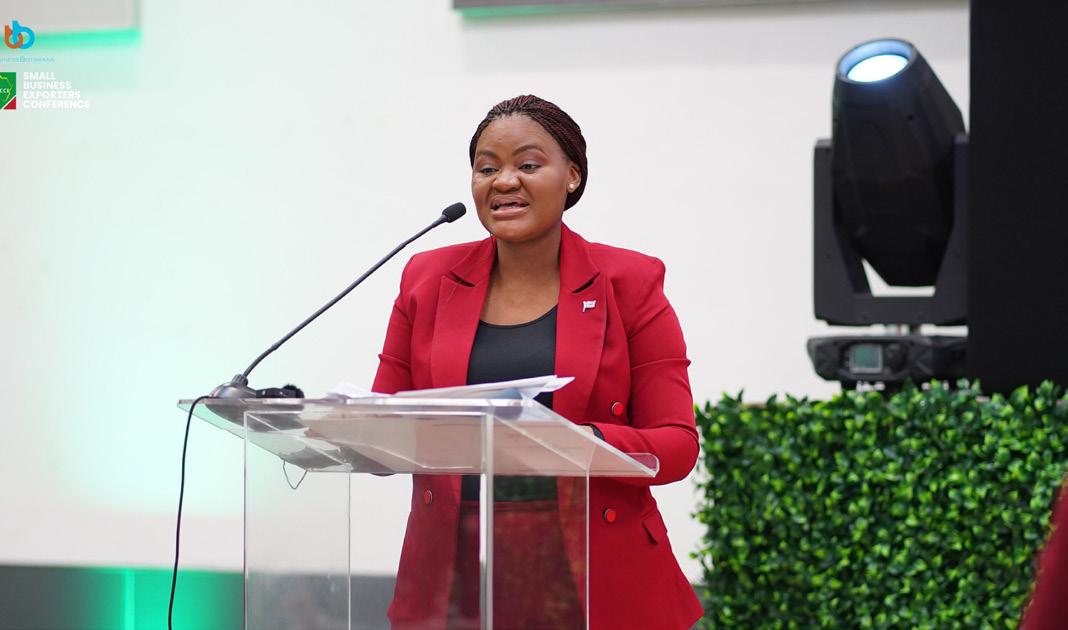
PACCI launches Educational Webinar Series to bolster AfCFTA awareness PACCI has launched a compelling webinar series to guide businesses through the opportunities presented by the African Continental Free Trade Area (AfCFTA). The first session, hosted by Renew Capital and titled “Free Trade in Africa: What It Means For You,” took place on 8 May 2024, via Zoom. It attracted business leaders eager to leverage AfCFTA for growth, offering insights into trade liberalisation, market entry strategies and the practical tools necessary for navigating new markets. This session emphasised the strategic benefits of regional trade and provided participants with the chance to apply for customised support, funded by the Government of Canada, to aid their expansion plans. For those who missed the live event, the webinar is available on-demand, ensuring ongoing access to these valuable insights. Business leaders interested in exploiting the full benefits of AfCFTA should consider viewing this session. For more details and to access the webinar, visit Renew Capital’s and PACCI’s official websites. More webinars are lined up from May to September ahead of the Prosperity Africa Chambers Business Expo. Visit www.pacci.org for more information.
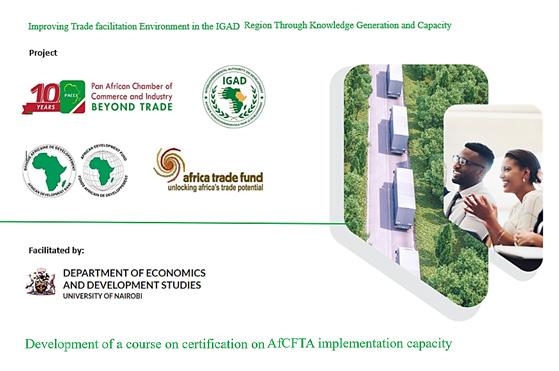

Recent initiatives by PACCI
Certification Course on AfCFTA Implementation Capacity launches in June 2024 Are you dedicated to enhancing cross-border and intra-African trade? Join us for the Certification Course on AfCFTA Implementation Capacity, a pivotal part of the “Improving the Trade Facilitation Environment (ITFE) in Eastern Africa” project. This collaborative effort is brought to you by the Pan African Chamber of Commerce and Industry (PACCI), the Intergovernmental Agency on Development (IGAD), the African Development Bank (AfDB) East Africa Regional Hub (RDGE) and is facilitated by the University of Nairobi Department of Educational and Distance Studies. This course is designed to strengthen technical capacity and deepen understanding of the AfCFTA. Launched in early June 2024, you can find more details at www.pacci.org. Join a community of business support professionals, leaders and trade enthusiasts committed to making a significant impact on Africa’s trade landscape.
The Uganda National Chamber of Commerce and Industry (UNCCI) is the oldest national umbrella organization for the private sector in Uganda. UNCCI was established in 1933 by the business community as a membership organisation to protect their interests during the Great Depression of the 1930s, and then the Second World War. The organisation faced a challenge with an economic recession following the 1972 expulsion of Ugandans of Indian origin by Idi Amin. UNCCI was reestablished in 1978 and registered as a company limited by guarantee without share capital, guided by a set of by-laws enshrined in articles and memorandum of association. The leadership of the organisation is elected through a vote at an annual general assembly once every five years. UNCCI has a multi-sectoral membership countrywide. The Chamber has a network of district Chamber branches that represent all regions in over 80 districts. This diversity makes UNCCI the preeminent business association in the country, dedicated to fostering commerce and industry relations within Uganda and beyond through its networks within the international business community.
Contact details for UNCCI
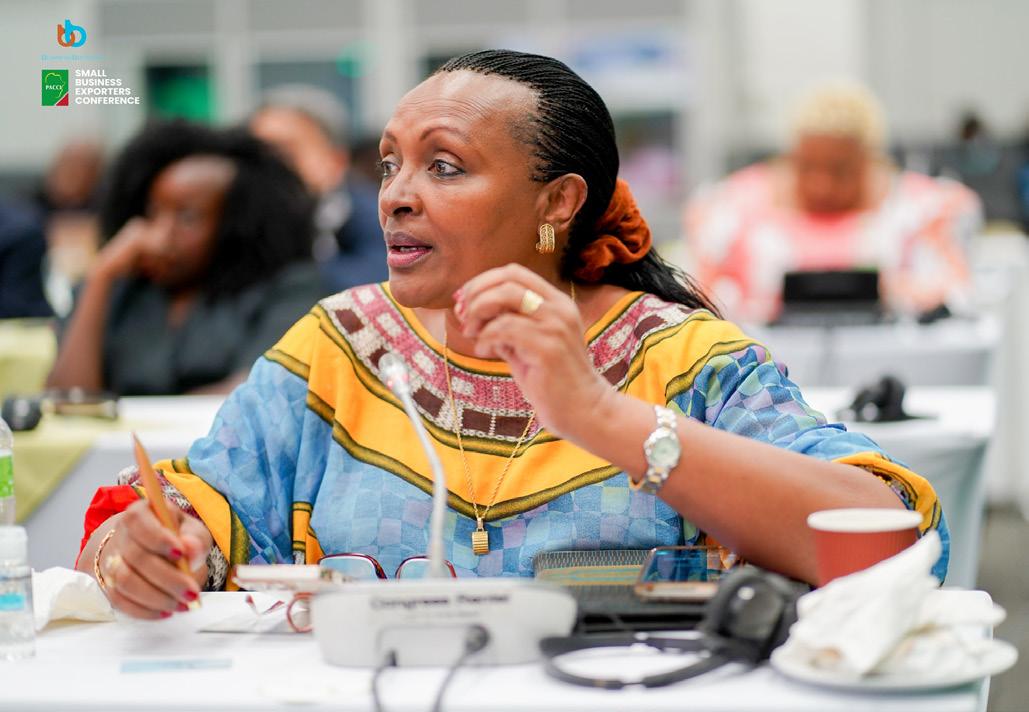
Physical address: Plot 21, Tufnell Drive, Kamwokya, Kampala, Uganda | Postal address: PO Box 3809 Kampala, Uganda Tel:+256 753 503035 | E-mail: info@chamberuganda.go.ug | Website: www.chamberuganda.go.ug


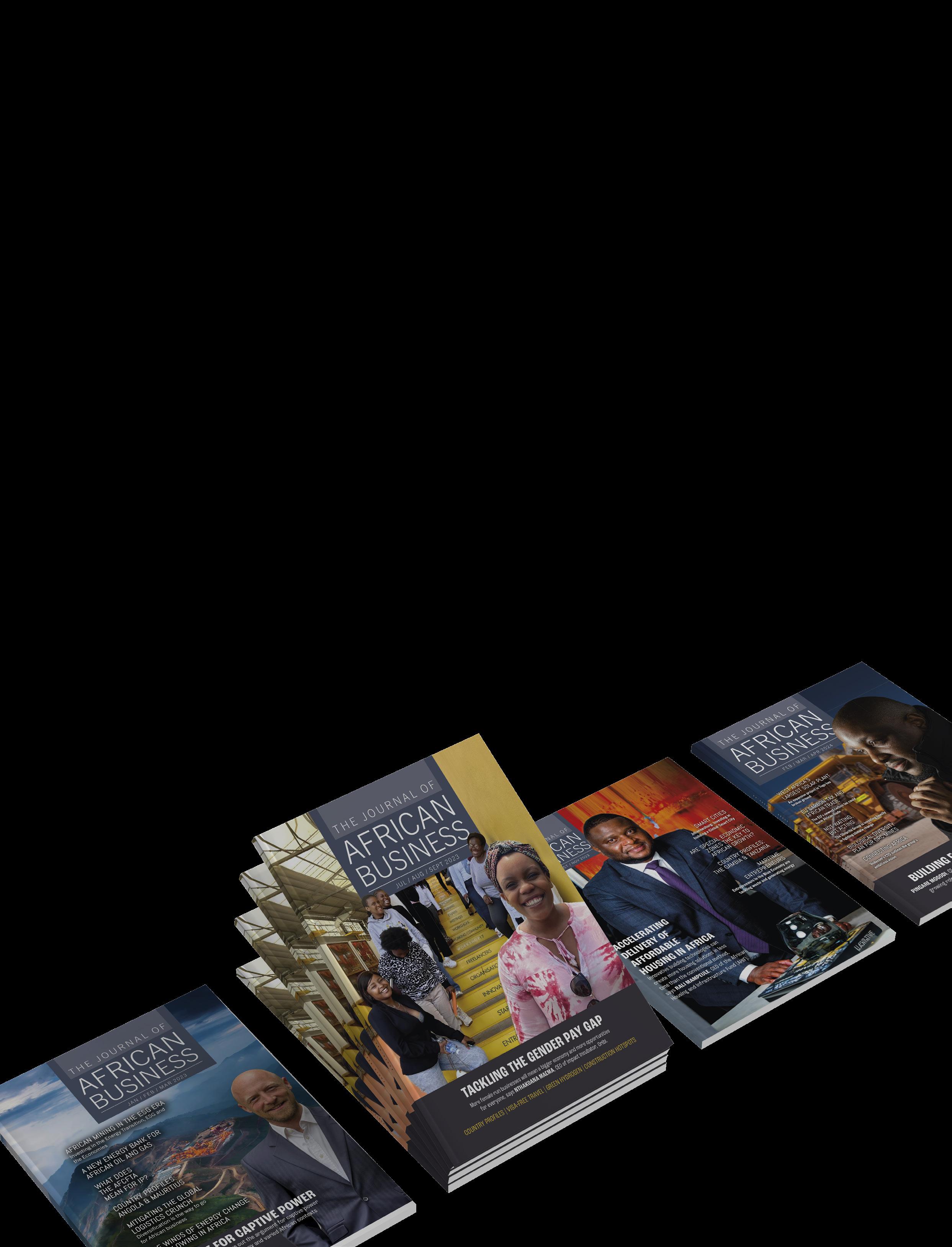

The Executive Director of the Pan African Chamber of Commerce and Industry (PACCI), Mr Kebour Ghenna, outlines the vision of the continent’s foremost chamber body to be pivotal force in fostering an environment where commerce and sustainability coexist harmoniously.
TThe African Continental Free Trade Area (AfCFTA) presents unprecedented opportunities for African businesses, empowering them to enhance their productivity, improve the quality of their products and services and compete on a global stage. As we usher in a new era of intra-continental trade, the role of chambers in raising awareness and driving the implementation of AfCFTA is critical. The Pan African Chamber of Commerce and Industry (PACCI) stands at the forefront of this transformative movement.
Established in 2009, PACCI serves as an independent, non-profit organisation dedicated to advocating for public policies that promote continental economic integration, competitiveness and sustainable growth. As the largest and most influential business association in Africa, PACCI operates through more than 50 national chambers of commerce, leveraging their collective strength to foster a prosperous business environment across the continent.
Our vision is clear: to be the recognised voice of African businesses and a valuable resource to our members. We are committed to transforming Africa into a vibrant hub for commerce, manufacturing and service industries, characterised by: Economic empowerment: We are committed to promoting the well-being of African businesses, enhancing intra-African trade and improving the productive capacity of enterprises across the continent.
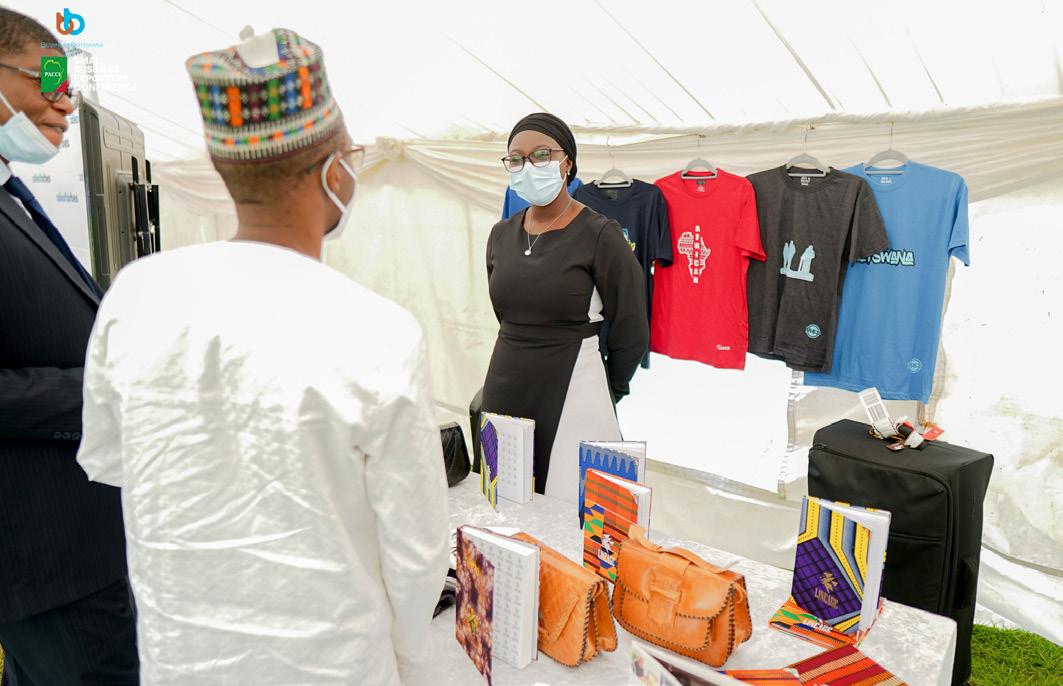
Sustainability and innovation: We advocate for a green transition and climatechange readiness, ensuring businesses are sustainable and prepared for the future. Our initiatives support gender-responsive policies and the integration of youth, which are crucial for holistic economic growth.
Technology and accessibility: Through our Chamber Africa Connect initiative, we are digitising and diversifying services to make business operations more efficient and accessible, preparing our members for the digital age.
Inclusive growth: We ensure that the benefits of trade liberalisation contribute not only to economic growth but also to environmental protection and the creation of sustainable employment opportunities.
Headquartered in Addis Ababa, Ethiopia, with service desks in Ghana, Kenya and Dubai, PACCI serves as a pivotal force in driving these changes, fostering an environment where commerce and sustainability coexist harmoniously. As we move forward, our mission remains steadfast: to empower African businesses to thrive and expand, paving the way for a prosperous and inclusive economic future.



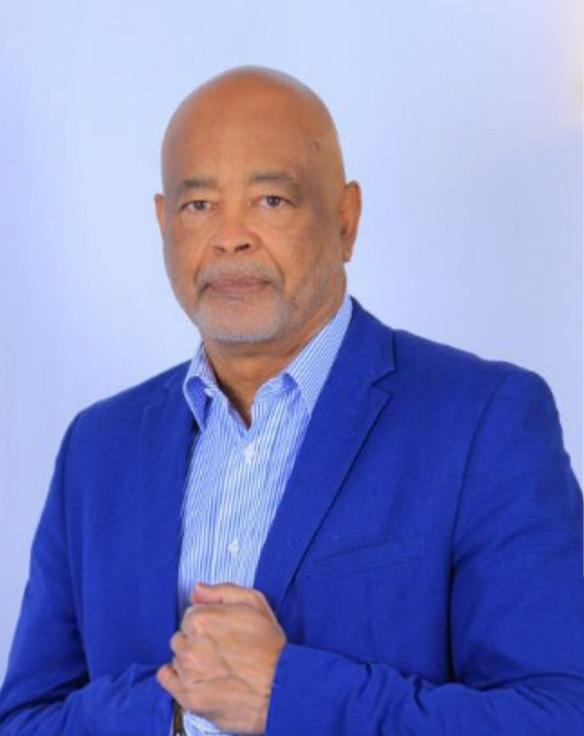
Welcome to The Journal of African Business, your up-to-date guide to business and investment trends on the continent.
This issue heralds a significant first for the magazine as the media and distribution partnership with the Pan African Chamber of Commerce and Industry (PACCI) is launched. A message from the publishers of the Journal introducing this new venture is printed alongside an article by the Executive Director of the PACCI, Mr Kebour Ghenna, outlining what values underpin PACCI’s work and how the continent’s leading chamber entity goes about its business. News about PACCI’s Prosperity Africa Chambers Business Expo, the sixth edition of this exciting event, is carried on the Inside Front Cover of the magazine. The event will be held, in conjunction with the Uganda National Chamber of Commerce and Industry (UNCCI) and the United Nations Development Programme (UNDP) in Kampala from 25 September.
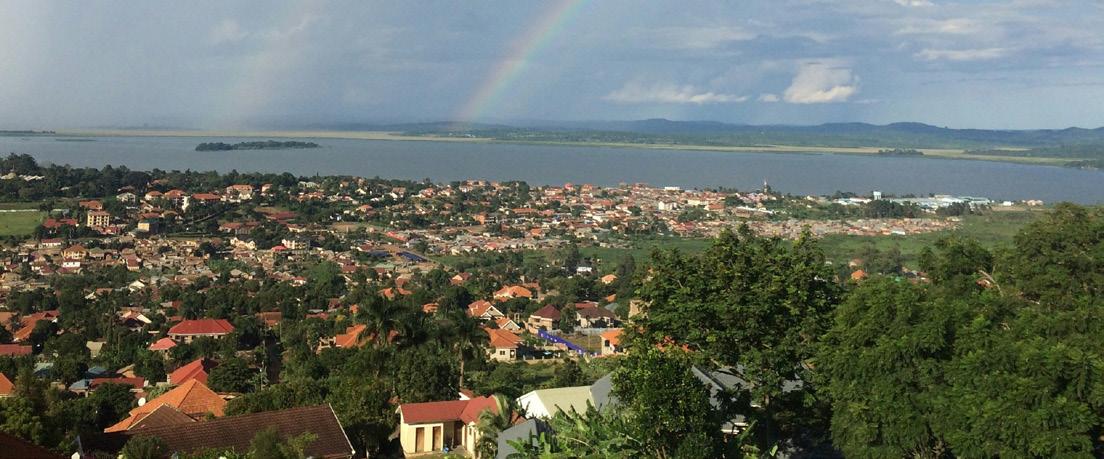
how his company intends expanding its already considerable presence on the continent and the place of multi-corridors in those plans. News of a $3-million commitment by the United States Agency for International Development (USAID) to African water projects will be welcomed by anyone concerned about infrastructure. The African Development Bank’s African Water Facility will be responsible for disbursing the funds.
The British Council’s Regional Exams Director writes on the urgent need to improve African school curricula. Keshav Sreedharan calls for a new emphasis on skills relevant to the technologies that are prevalent in the world today, but also argues that multilingual capabilities need to be nurtured.


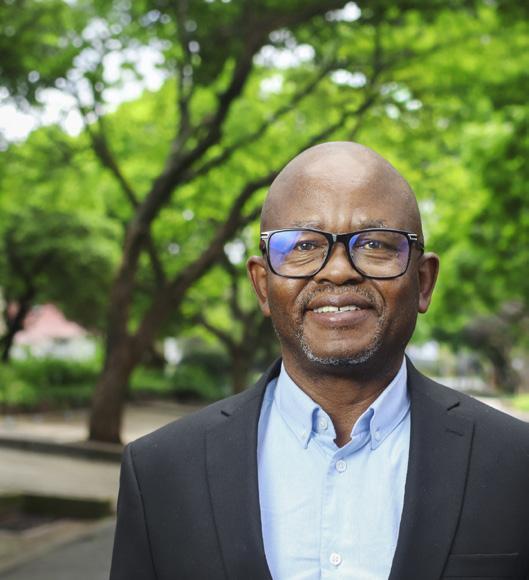
A roundup of some of the other recent activities of PACCI can be found on the facing page. The objective of The Journal of African Business is to cover a wide range of economic sectors and regions. Developments in energy, mining, technology, tourism, trade and finance are often in focus.
Interviews provide unique insights. In this issue, Gustav Mertz, Executive Vice President: Bulk and Corridors for Sub-Saharan Africa at DP World, reveals
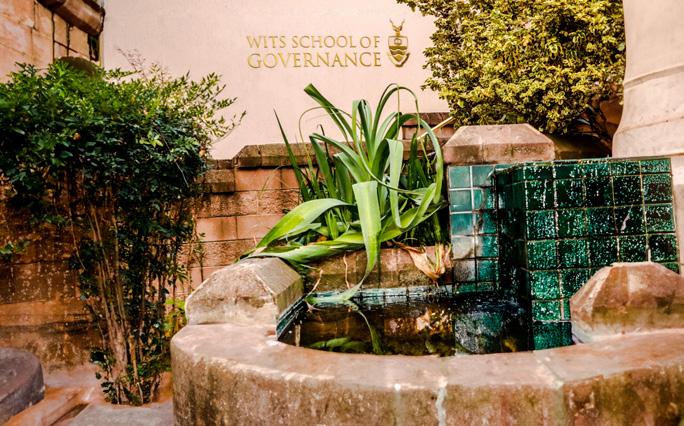
Editor: John Young
Publishing director: Chris Whales
Managing director: Clive During
Online editor: Christoff Scholtz
Designer: Salmah Brown
Production: Sharon Angus-Leppan
Ad sales: Venesia Fowler, Tennyson Naidoo, Sam Oliver, Tahlia Wyngaard, Gavin van der Merwe, Graeme February, Shiko Diala, Gabriel Venter and Vanessa Wallace
Administration & accounts: Charlene Steynberg, Kathy Wootton, Distribution & circulation manager: Edward MacDonald
He calls for curricula that are “ambitious and integrate local and global narratives that spark curiosity and inspire learners”.
Matthew Cumming of Business Partners Limited believes that small businesses can be the solution to sustainable growth and development in Africa. Digital finance services and the provision of domestic gas are two examples the author gives where small business can be transformative.
The things that are transforming Africa’s telecoms sector are customer experience and efficiency, according to Louis Avenant, Senior Project Manager at Itemate Solutions. The shift away from feature phones to more function-rich smartphones will also be influential on future trends in the market. Finally, Sabeeha Kathrada of Norton Rose Fulbright reflects on a 2024 Investing in African Mining Indaba panel discussion on the corruption risks run by mining companies
Editor, The Journal of African Business
Email: john.young@gan.co.za
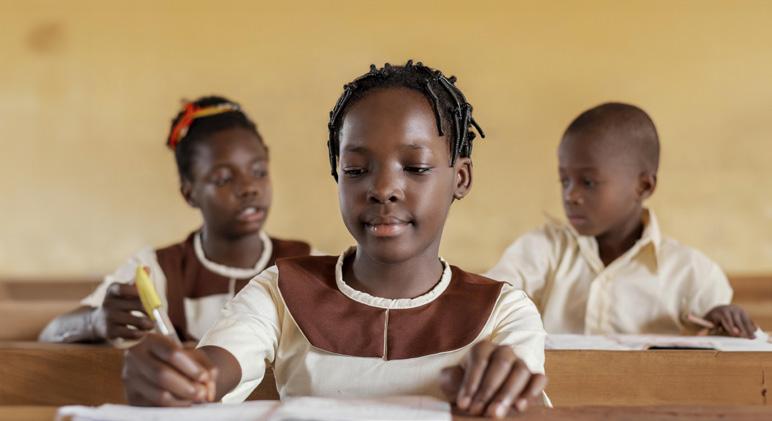
The Journal of African Business is published by Global Africa Network Media (Pty) Ltd Company Registration No: 2004/004982/07
Directors: Clive During, Chris Whales
Physical address: 28 Main Road, Rondebosch 7700
Postal: PO Box 292, Newlands 7701
Tel: +27 21 657 6200 | Email: info@gan.co.za Website: www.globalafricanetwork.com

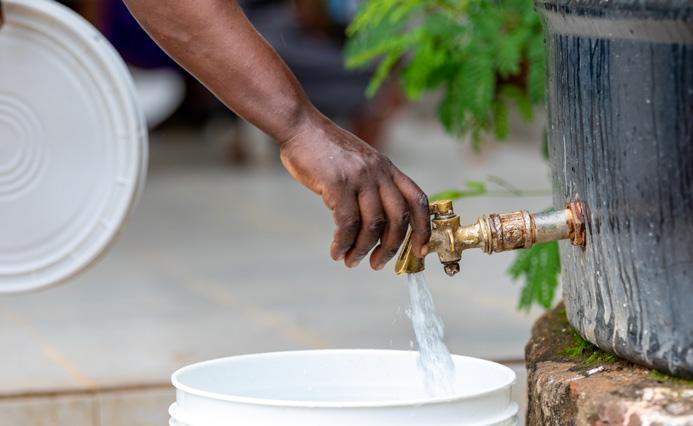
No portion of this book may be reproduced without written consent of the copyright owner. The opinions expressed are not necessarily those of TheJournalofAfricanBusinessmagazine, nor the publisher, none of whom accept liability of any nature arising out of, or in connection with, the contents of this publication. The publishers would like to express thanks to those who support this publication by their submission of articles and with their advertising. All rights reserved. Printing: FA Print


2 3 6
MESSAGE
A message from the publishers of The Journal of African Business, welcoming the launch of a partnership with the Pan African Chamber of Commerce and Industry (PACCI).
PROMOTING AFRICA’S ECONOMIC INTEGRATION
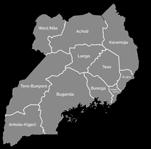


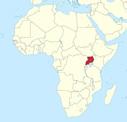

The Executive Director of the Pan African Chamber of Commerce and Industry PACCI, Mr Kebour Ghenna, outlines the vision of the continent’s foremost chamber body.
NEWS FROM ALL AROUND AFRICA
Recent investments, expansions and milestones.
EMBRACING DIGITAL GOVERNANCE IN AFRICA
Wits School of Governance has an initiative on digital governance called Tayarisha where teaching and research takes place.
THE URGENT CALL TO ENRICH AFRICAN SCHOOL CURRICULA
By Keshav Sreedharan, Regional Exams Director, Sub-Saharan Africa, British Council.
DP WORLD HAS BIG PLANS FOR AFRICA
Gustav Mertz, Executive Vice President: Bulk and Corridors for Sub-Saharan Africa at DP World, outlines his company’s multi-corridor strategy.
USAID COMMITS $3-MILLION TO AFRICAN WATER PROJECTS
The African Water Facility, hosted by the African Development Bank, will distribute the money to boost water provision in Africa.
AFRICA TEEMS WITH CLEAN ENERGY PROSPECTS
A continental overview of renewable energy has been published.
SMALL BUSINESS CAN DO THE BUSINESS IN AFRICA
Small businesses can be the solution to sustainable growth and development in Africa, says Matthew Cumming of Business Partners Limited.
TRENDS TO WATCH IN VIBRANT AFRICAN TELCO SECTOR
Customer experience and efficiency are driving the growth of Africa’s telco sector, according to Louis Avenant, Senior Project Manager at Itemate Solutions.
CORRUPTION AFFECTING THE MINING INDUSTRY
Sabeeha Kathrada of Norton Rose Fulbright reflects on a 2024 Mining Indaba panel discussion on the corruption risks run by mining companies.
COUNTRY PROFILES
Republic of Uganda and the Federal Democratic Republic of Ethiopia.
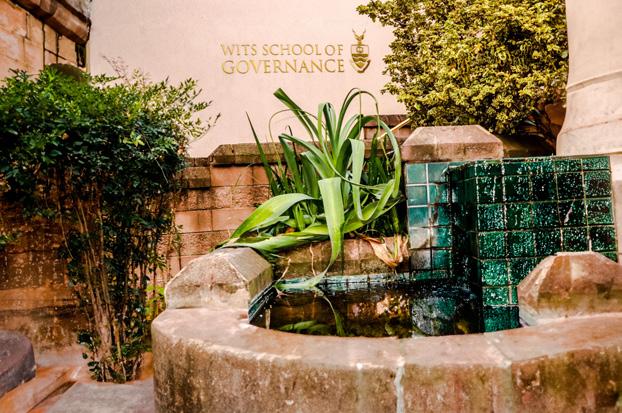
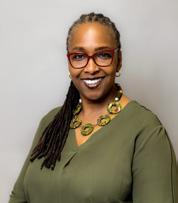


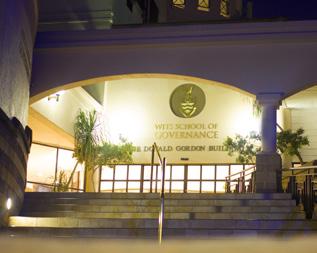

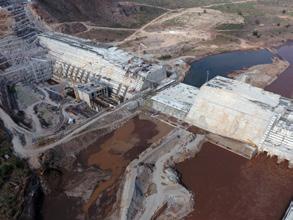
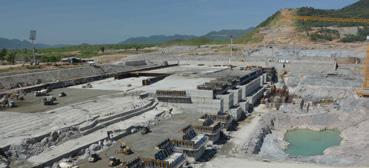


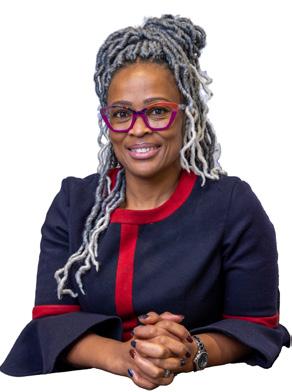


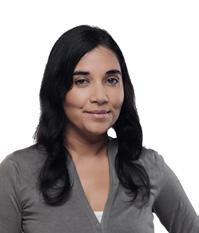


The GirlTechs project, a groundbreaking initiative aimed at empowering female high school learners in STEM (Science, Technology, Engineering and Mathematics) education, reached a momentous milestone with the graduation ceremony of its inaugural cohort in March 2024. Spearheaded by HE President Sahle Work Zewdu, the President of Ethiopia, and supported by Coca-Cola Beverages Africa in Ethiopia (CCBA in Ethiopia) together with Honeywell in Ethiopia, the GirlTechs project has made a significant contribution to the education of the participants in Addis Ababa and Sebeta. Implemented by iCog Anyone Can Code, the GirlTechs project has been instrumental in bridging the gender gap in STEM fields, equipping young women with the knowledge and skills needed to thrive in the digital age. Over the course of two months, participants underwent intensive training in computer programming and coding, facilitated by expert instructors and Information and Communications Technology (ICT) teachers. The graduation ceremony celebrated the remarkable achievements of the project’s participants, highlighting their dedication, perseverance and newfound proficiency in computer literacy and coding. Through the establishment of coding clubs to carry the work forward, the “for(her)” project ensures the sustainability of its impact.
The GirlTechs project exemplifies the transformative power of collaboration and shared commitment to gender equality and youth empowerment. CCBA Ethiopia and Honeywell in Ethiopia, together with iCog-ACC, have demonstrated their unwavering dedication to fostering inclusive education and creating opportunities for young women to thrive in the digital era. The GirlTechs vision was driven by Honeywell and President Sahle Work Zewdu, who initiated a commitment to empowering young girls in technology. Over three impactful years and three remarkable cohorts, GirlTechs has flourished. The first cohort, launched at the Hope for the Fatherless Group Home and Life Training Centre, provided brand-new laptops and a computer lab, along with 100 hours of coding training for young learners in grades 3 to 8. The second cohort expanded to public high schools in Addis Ababa, benefiting female learners by nurturing their computer skills in coding, robotics and game creation. The third cohort aimed to strengthen and amplify GirlTechs’ impact by not only benefitting learners, but also empowering multiple teachers and establishing dozens of coding clubs. The GirlTechs project continues to unlock new opportunities for young girls, paving the way for a brighter and more equitable future for Ethiopia’s future workforce.
ADvTECH Group produced good financial results in 2023 with the expansion into Africa a highlight. The following extracts are taken from the ADvTECH website, dated 25 March 2024: Commenting on the results, retiring ADvTECH CEO, Roy Douglas, said: “ADvTECH’s robust financial performance for the year ended December 2023 is indicative of the group’s sound business model and quality assets. Our schools and tertiary divisions benefitted from good enrolment growth, moderate fee increases and enhanced operating leverage, while, in our resourcing division, we continued to benefit from our investment into the rest of Africa. This sustained
performance is driven by the group’s established market position in South Africa and its growing presence across the continent.”
ADvTECH’s school brands in the rest of Africa recorded strong enrolment growth. Revenue increased by 14% to R381-million (2022: R334-million) while operating profit improved by 43% to R114-million (2022: R80-million) despite the impact of the weakening Kenyan Shilling. The operating margin advanced from 23.9% to 30%. Capacity was increased at Crawford International School in Kenya as it continued to experience strong demand. All of the finalyear students that completed their A-Level qualification
were accepted into international universities. Gaborone International School (GIS) in Botswana, pictured, continued to perform exceptionally well with strong enrolment growth and market leading academic results. The students achieved a 99.7% pass rate in the International General Certificate of Secondary Education (IGCSE) exams.
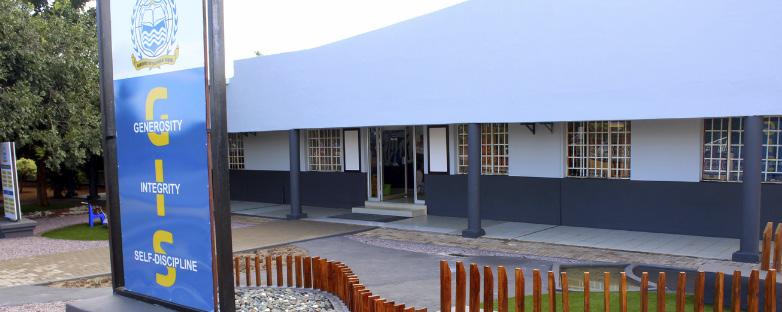
A new cross-country initiative between South Africa and Senegal envisages over 400 youth enrolled in a socialentrepreneurship programme, with over 90 budding women social entrepreneurs emerging over the next three years. ORIBI, in collaboration with Agence Française de Développement, Groupe SOS Pulse (France) and Jógjëf (Senegal), announced the launch of REACH, an initiative dedicated to enabling women and youth in marginalised communities to develop social entrepreneurship ventures, in 2023. Pulse Groupe SOS is a non-profit organization focused on driving positive change globally, creating pathways towards entrepreneurship for inclusive and sustainable development. ORIBI is part of the Pulse network of incubators and supports innovators establishing solutions for economic participation and socio-economic and ecological goals. Jógjëf is a PULSE Groupe SOS and Digital University of Senegal incubator. The emerging economies of both South Africa and
Senegal rely on social entrepreneurship to address pertinent social and environmental issues that hinder the livelihoods and well-being of many people. The partnership between Oribi and JògJëf to launch REACH is based on shared organisational aspirations to make social entrepreneurship accessible to underserved populations in Africa. The two social impact incubators will exchange expertise in impact measurement, sustainable business models, supporting women and fostering essential collaborations. Over a three-year period, Agence Française de Développement has committed to fund €800 000 to support REACH.
REACH will run to June 2026 with a total budget of €1.6-million with the main aim of democratising social entrepreneurship across Africa. “Enabled entrepreneurs, driven by solidarity and social entrepreneurship, will re-shape and uplift under-resourced communities and rural places, addressing unemployment and poverty,”
A $1.5-million cold-storage facility has been launched in Kenya by Fruitbox Ltd. The company is jointly owned by Sandip Jethalal and Bhaumik Shah and two South African companies, Vitanova International and Tru-Cape Fruit Marketing. The launch of the facility, which can accommodate 800 pallets on seven loading docks, took place in October 2023. It is located within the Tilisi development, about 30km from Nairobi CBD and close to the A104 Nairobi-Nakuru Highway. This convenient location allows Fruitbox Ltd to receive fruit entering the country via sea freight from Mombasa or air freight from Nairobi. Sandip Jethalal, general manager of Fruitbox, says that value is added through a sophisticated reporting system: “We send all data back to suppliers and maintain a very good cold chain. From the time of arrival to storage should not take longer than an hour.” Roelf Pienaar, managing director of Tru-Cape Fruit Marketing, puts this investment into a broader perspective: “Our vision is to serve the Central East African market in a bigger, better and more efficient way. Our management of the cold chain and the quality of our cold storage and product handling enables us to import and distribute more sensitive fruit types, broadening the product offering to the market.”

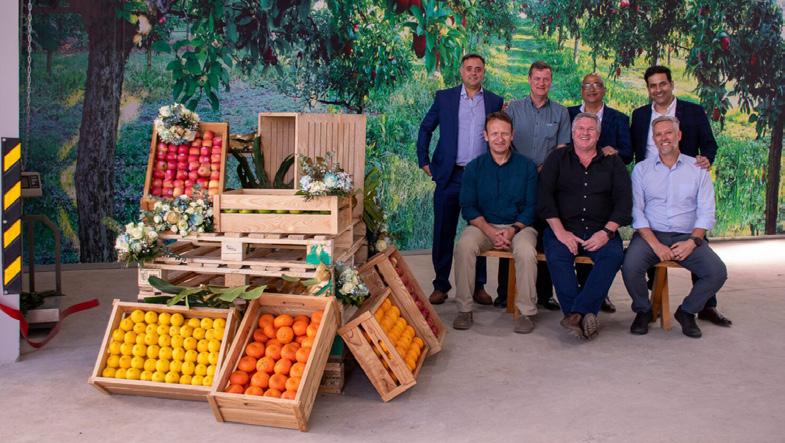
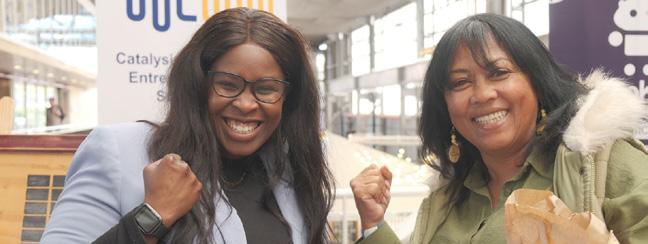
says Nthakoana Maema, CEO at Oribi in Cape Town. Oribi seeks to unlock socioeconomic opportunities for women and youth through impact entrepreneurship, building on ongoing initiatives like #GirlsInBusiness and #FoodSystems. “Social entrepreneurship plays a massive role in creating employment opportunities for youth and women in key areas for social upliftment and community development, while addressing the gender gap in these working groups,” adds Maema.
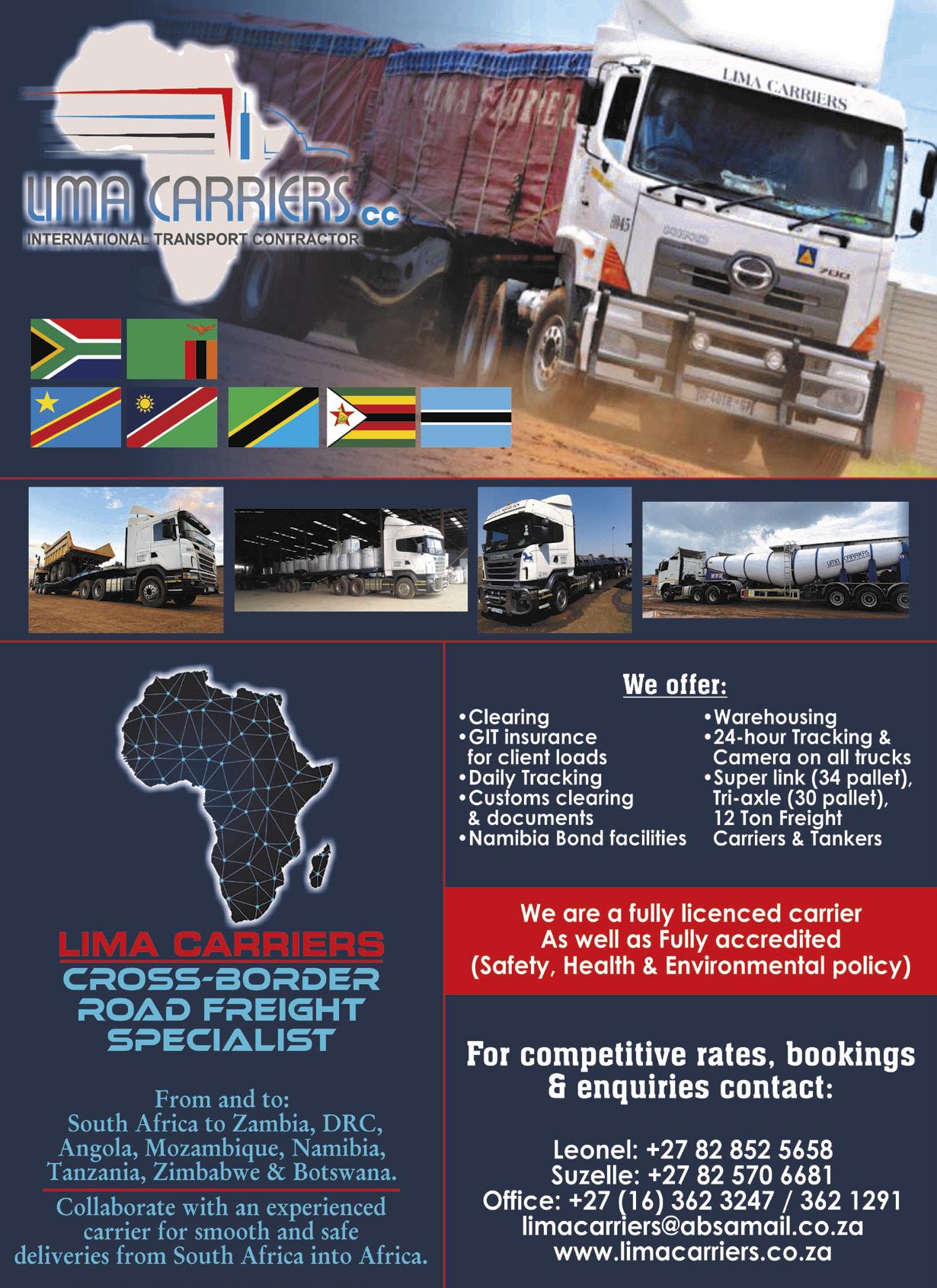
Unlock the future with Tayarisha at the Wits School of Governance.
TThe Wits School of Governance proudly hosts Tayarisha, an initiative on digital governance established in 2021 at Wits University. As a hub for teaching, research, policy dialogue and outreach, Tayarisha addresses the challenges and opportunities of digitisation in the public sector, society and industry across Africa.
Why Tayarisha matters
Tayarisha operates at the intersection of government, business and society, focusing on regulation, public policy and ethics. By conducting rigorous research, providing top-tier education and fostering public debate, Tayarisha contributes to the public good.
Visit: https://www.wits.ac.za/tayarisha/
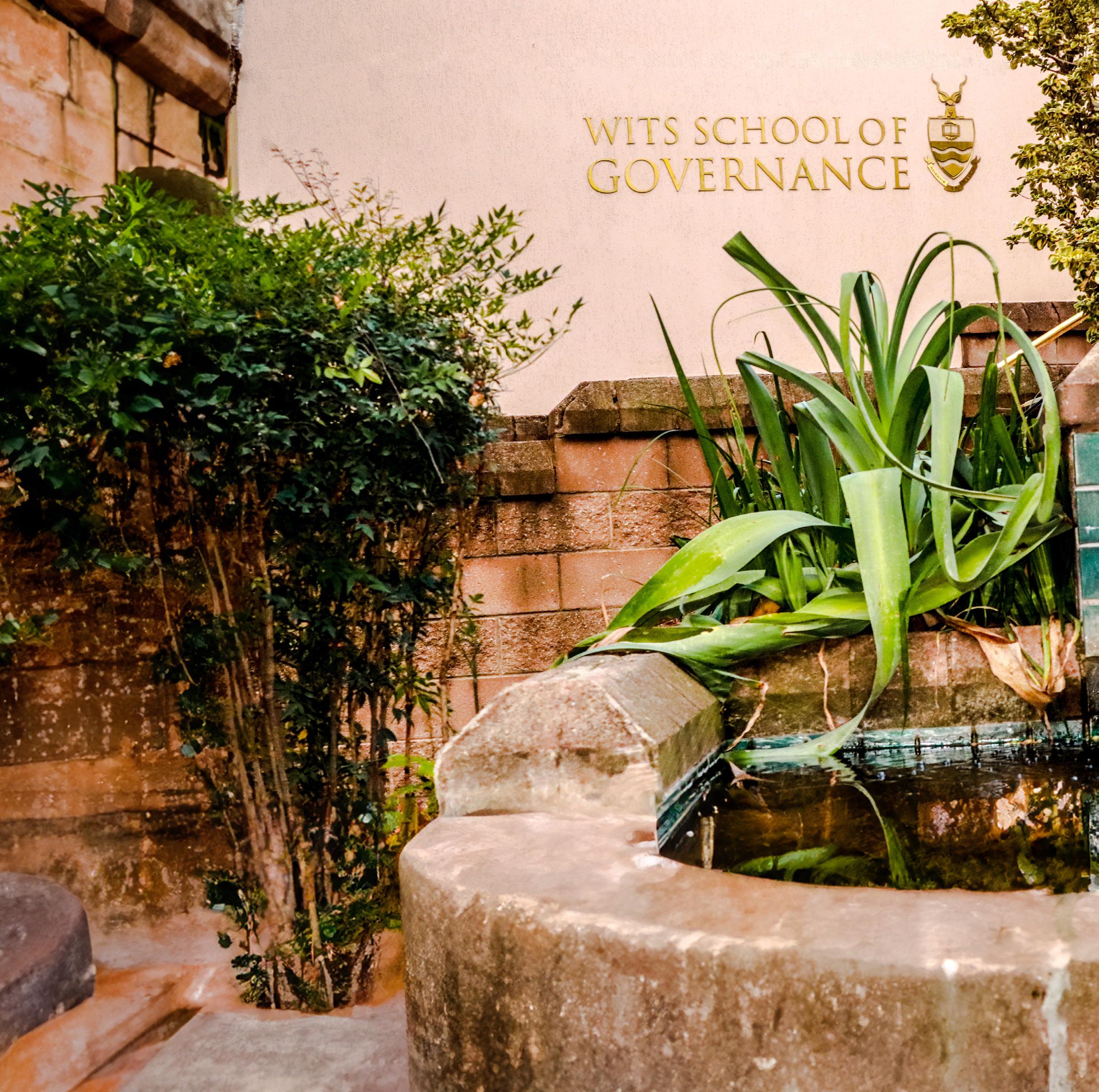

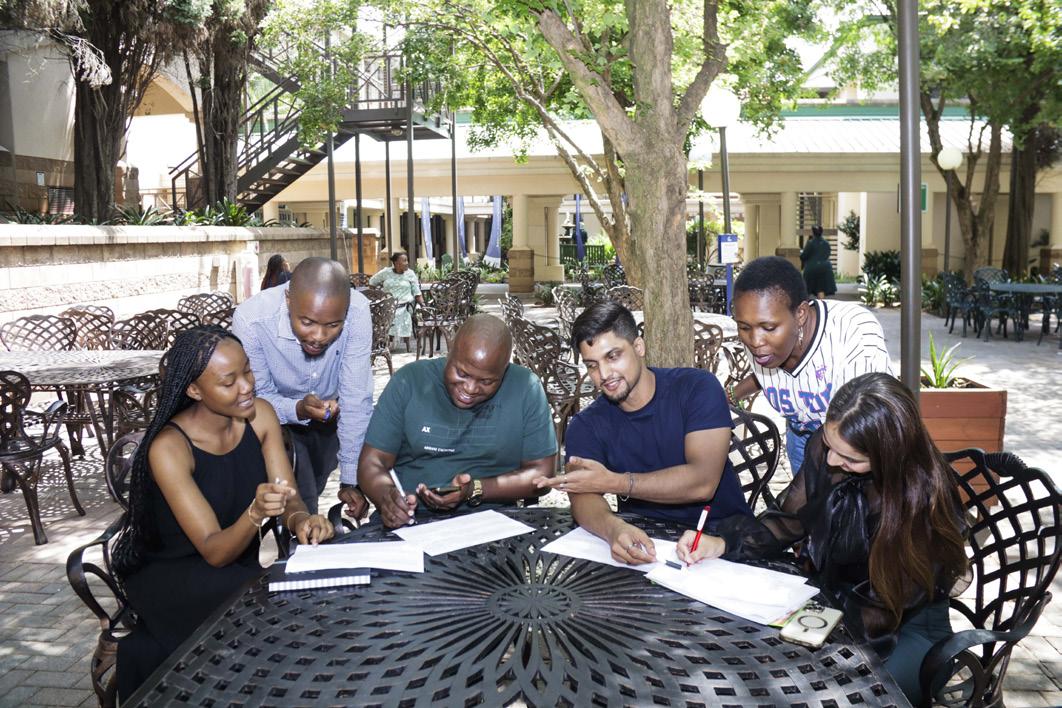
Our initiative provides:
Governance perspective: Transforming government policies and service delivery through digitalisation.
Public policy perspective: Emphasising government-private sector and civil society relations and regulatory and ethical implications.
Socio-technical perspective: Examining social change and human behaviour in relation to technological development.
“Tayarisha connects, hosts and convenes experts and initiatives to advance digital transformation and anticipatory governance,” says Associate Professor Geci Karuri-Sebina, Tayarisha’s coordinator. “We aim to collaborate with Africa’s leading experts in digital governance and become the premier community of resources in this field.”
Research focus areas
• Governing Digital Transformation
• Digital Policy, Legislation and Regulation
• Digital Public Systems, Services and Innovation
• Data Governance, Intelligence and Analytics
• Digital Rights and Development
• Digital Democracy and Participation
• Digital Trust, Ethics and Inclusion
• African Digital Futures and Anticipatory Governance
Upcoming Event: ICEGOV 2024
South Africa, through the School of Governance (Wits University) and the National Department of Public Service and Administration (DPSA), will host the International Conference on Theory and Practice of Electronic Governance (ICEGOV) from 1-4 October 2024 in Pretoria. The conference theme is “Trust and Ethical Digital Governance for the World We Want.” For more information and to register, visit: www.icegov.org
Join us at Tayarisha to explore, innovate and lead in the digital governance space. Together, we can shape the future of digital transformation in Africa.


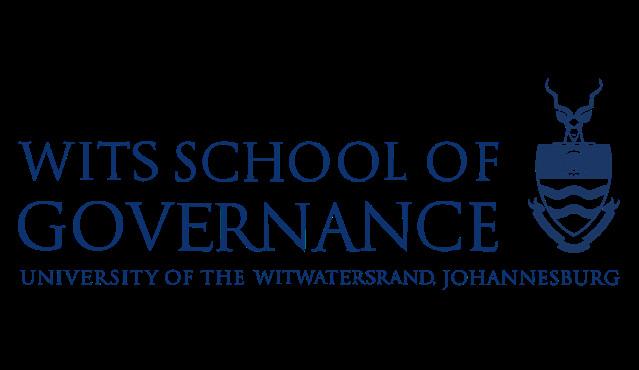
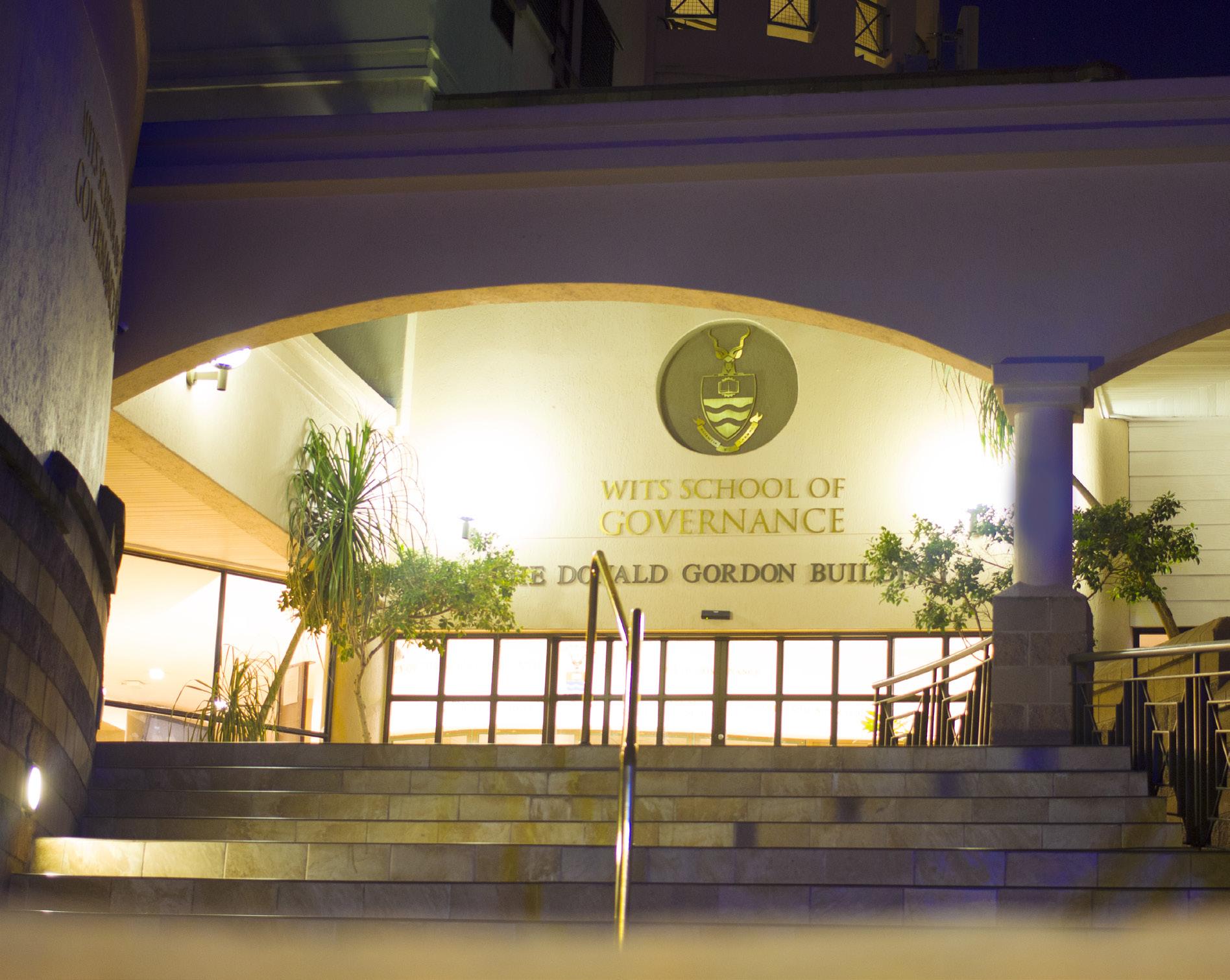
Flexible learning: Choose from a variety of programmes, including postgraduate degrees, executive short courses and online options to fit your needs and schedule. Research focus: WSG’s research-led approach ensures your education is grounded in cutting-edge knowledge and real-world application.
Our programmes and executive education focus on public policy, development economics and governance and management. Whether you’re a seasoned professional or a recent graduate, WSG has an offering to help you achieve your goals.
Shape a better Africa: Study at the Wits School of Governance
Do you dream of a more just and well-governed Africa? The Wits School of Governance can help you turn those dreams into reality. At Africa’s leading School of Governance, we offer a unique educational experience that combines rigorous academics with real-world practice.
Make a difference: WSG is dedicated to developing future leaders who can tackle Africa’s most pressing governance challenges.
Expert academics: Learn from renowned academics and practitioners who are at the forefront of governance and policymaking research.
Diverse community: Network with experienced professionals from across the public and private sectors and civil society.
We work closely with government and community-based organisations in South Africa and across the African continent to:
• Support national and local public policy development, governance frameworks and institutional arrangements
• Enhance management systems, mechanisms and modalities
• Help the public sector to strengthen service-delivery through skills, strategic planning, programme development and monitoring and evaluation
• Develop public finance capacity in almost all sectors of government
• Prepare our students to be global citizens while responding to local challenges
• Host several talks and debates on topics that directly affect us such as race relations, corruption, security and policy-related issues.

Visit: www.wsg.ac.za
By Keshav Sreedharan, Regional Exams Director, Sub-Saharan Africa, British Council

AAs education in Africa evolves, integrating instructional, social, emotional and community aspects, there’s a growing emphasis on skills that transcend traditional learning. This includes nurturing multilingual capabilities, embracing technology and focusing on creativity, adaptability and transferable skills critical for the future.
At the same time, digital technology and artificial intelligence are significantly transforming education, presenting opportunities and challenges like the digital divide and the need for online safeguarding, particularly in Africa. While educators are being required to navigate these changes and challenges, they also must ensure learners are prepared for a rapidly changing world. This underlines the urgent need for curricula to be ambitious and integrate local and global narratives that spark curiosity and inspire learners.
Acknowledging this, the British Council’s Partner Schools Programme is designed to enhance educational standards and promote international connections between schools worldwide. Through this programme, we provide a comprehensive package that includes professional development for educators, access to highquality educational resources and opportunities for quality assurance and improvement. This ensures that schools align with global educational standards, providing students with a competitive and internationally recognised education. Beyond curriculum support, the programme emphasises the development of global citizenship and English language proficiency among students. It connects schools across different countries, facilitating cultural exchanges and collaborative learning projects that enrich the educational experience for both teachers and learners. Through competitions, online resources and events, students are encouraged to develop critical thinking, creativity and an understanding of global issues. This network of partner schools is aimed at preparing students for success in a globalised world, emphasising the importance of cultural understanding and international cooperation in education.
Building an interconnected global educational community
Events like the British Council’s Schools Now! ‒ a global conference dedicated to advancing educational innovation within the network of Partner Schools ‒ brings together professionals to explore key facets of international education, share insights and connect with peers.
Held this year in Sub-Saharan Africa for the first time, the 2024 event, hosted in Cape Town, South Africa, showcased the region’s contributions to modern education and encouraged global exchange of best practices tailored to the African educational context. Such collaboration ensures that the curriculum is responsive to students’ needs, blending technological and face-to-face learning methods to overcome infrastructure challenges and create a learning environment that encourages critical thinking and adaptability.
We also support educators on their professional journey with initiatives like the Action Research Grant. This allows teachers to conduct research projects aimed at refining teaching methods, evaluating curriculum improvements and meeting students’ changing needs. Through action research, educators deepen their understanding of effective teaching strategies and add valuable knowledge to the wider educational community.
Recent grant winner Lydia Biama Quansah, Head of Academics at Dayspring International Academy in Ghana, is conducting research to refine the school’s professional development approach, focusing on lesson planning and promoting 21st-century skills, and identifying gaps and opportunities for enhancement by examining the impact of various training modalities. This has the potential to serve as a model for schools across Ghana and the Partner Schools community.
Enobong Imaha, Head of Literacy at Pegasus Schools in Nigeria, is focusing on
developing effective Continuous Professional Development (CPD) to enable school improvement. By comparing CPD effectiveness in Nigeria with global standards and exploring teacher attitudes towards CPD, the research seeks to identify strategies for maximising engagement and is driven by the urgent need to modernise teaching methods in Nigeria.
The principal of Masuka Christian High School in Zimbabwe, Muridzo Benjamin, is focusing on developing leadership across all levels at the school and implementing a comprehensive training programme, to enhance operational coordination within the school. This is expected to improve the school’s performance and its standing in the community and contribute to a more engaged and participatory school environment.
Our UK Study Tour is designed to offer educators, school leaders and education professionals from around the world the opportunity to visit schools in the United Kingdom. This tour provides insights into the UK’s educational practices, innovative teaching methodologies and school management strategies. Participants get to observe classrooms, meet with UK educators and engage in workshops and discussions that focus on current trends in education, leadership, curriculum development and student engagement strategies. By experiencing the UK education system firsthand, participants gain valuable ideas and inspiration to implement in their own schools.
Another innovative element of the British Council’s educational initiatives is the Your World video-making competition. This competition challenges students to harness their creativity, critical thinking and digital literacy skills to create compelling videos on global issues. By engaging in this hands-on project, they not only deepen their understanding of complex global issues but also hone essential skills such as collaboration, communication and media literacy.
Together, these comprehensive initiatives are having a transformative impact and contribute to an enriched curriculum that extends beyond the classroom. It’s an approach that cultivates a deep-rooted enthusiasm for continuous learning and primes students to explore and realise their full potential outside academic confines. By equipping students with the skills necessary to tackle the challenges of the modern world, encouraging a lifelong passion for learning, and preparing them to follow their interests and ambitions outside of school, we can play a pivotal role in shaping well-rounded, adaptable and inquisitive learners ready to contribute to the global community.

The British Council’s Schools Now! is a global conference that fosters educational innovation across our global community of over 2 500 British Council Partner Schools spread across over 40 countries. The conference is aimed at educational professionals who wish to learn more about key areas of international education, share their ideas and experiences, and network with like-minded peers. The conference connects over 300 delegates face to face with a further 2 000 virtual attendees from around the world.
A trusted education partner, we help improve the quality of education, supporting learners worldwide to achieve their potential through access to life-changing UK education and qualifications. The British Council supports a global community of over 2 500 Partner Schools, to enhance the learning experience, improving educational outcomes. We create global connections within the educational community to support professional pathways for educators, enable enriched learning journeys and prepare students for the future. We support our Partner Schools to deliver globally trusted UK International School Qualifications, in over 40 countries transforming the lives of over 250 000 students every year.
For more information, please visit https://www.britishcouncil.org/exam/partnerschools
We support peace and prosperity by building connections, understanding and trust between people in the UK and countries worldwide. We uniquely combine the UK’s deep expertise in arts and culture, education and the English language, our global presence and relationships in over 100 countries, our unparalleled access to young people and influencers and our creative sparkle. We work directly with individuals to help them gain the skills, confidence and connections to transform their lives and shape a better world in partnership with the UK. We support them to build networks and explore creative ideas, to learn English, to get a high-quality education and to gain internationally recognised qualifications. We work with governments and our partners in the education, English language and cultural sectors, in the UK and globally. Working together we make a bigger difference, creating benefits for millions of people all over the world. We work with people in over 200 countries and territories and are on the ground in more than 100 countries. In 2022/23 we reached 600-million people.

For more information, please visit: www.britishcouncil.org
You can also keep in touch with the British Council through http://twitter.com/britishcouncil and http://blog.britishcouncil.org/
Greater stability in staffing will lead to smoother operations and greater efficiency, says Mokgadi Matli, newly appointed full-time CEO of Gateway Airports Authority Limited (GAAL).
CCongratulations on your appointment as CEO. What are the main takeaways that you have from your period as Acting CEO?
Serving as Acting CEO was an invaluable experience. Adapting quickly to changing circumstances and making decisions under pressure was key. I learned to navigate uncertainty with confidence and clarity. Clear, transparent communication is vital during times of transition. I honed my ability to articulate vision, strategy and expectations to stakeholders at all levels. Trusting my team to execute tasks autonomously was crucial. Empowering them led to increased morale, productivity and innovation. Facing challenges head-on and maintaining composure in turbulent times was essential. Resilience helped me persevere and keep the organisation focused amid adversity. This period taught me the importance of agility, communication, empowerment, strategic thinking and resilience in effective leadership.
Can your appointment to the full post be seen as a confirmation of further stabilisation of the administrative environment?
My appointment to the full post can indeed be viewed as a confirmation of further stabilisation within the administrative environment. It indicates that the organisation has confidence in my ability to lead and that there is continuity in leadership, which often fosters stability. If my appointment completes the roster of key management positions, it could signify a state of stability in terms of leadership. Nonetheless, stability is not solely contingent on having all positions filled but also on the effectiveness and cohesion of the leadership team.
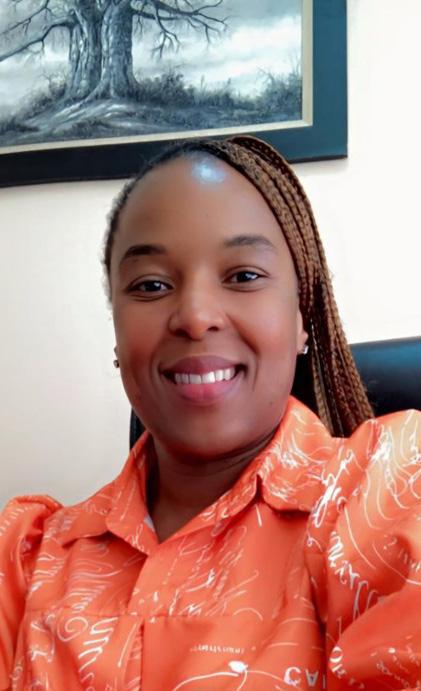
The appointment of a CEO provides a sense of direction and stability, signalling to stakeholders that the organisation is moving forward with a clear vision and leadership structure.
What will that stability enable GAAL to achieve?
Stability will enable smoother operations, stable systems and, with processes in place, the authority will streamline workflows, reduce delays and enhance overall efficiency in airport management. Stable operations contribute to a safer and more secure airport environment. Stability in GAAL will deliver a more seamless and enjoyable experience for travellers. With reliable services there will be minimal disruptions.
Please describe the relationship of GAAL and your team with the stakeholder.
The relationship between GAAL and stakeholders such as the Provincial Government and the Department of Transport and Community Safety is crucial for effective airport management and development. They provide regulatory oversight and set policies related to airport management, safety standards and infrastructure development. They allocate funds for capital projects, maintenance and upgrade of infrastructure. This is essential for expansion and modernisation. GAAL collaborates closely with the Provincial Government to align airport development plans with broader economic and integrated transportation strategies. By working together effectively, these stakeholders ensure the safe, efficient and sustainable operation of airports under GAAL’s management while supporting broader regional development objectives.
What is GAAL doing to take advantage of the strategic location of Polokwane relative to other South African airports and the SADC region?
Mokgadi Matli was born and raised in the village of Rosenkrantz Ga-Matlala, Limpopo. She is a self-driven human-resource professional who has worked in the human resource management field for over 20 years, of which 14 have been at managerial level. She has served in both the private and public sectors, with most of her experience acquired in the manufacturing and gaming industries. She has been in the aviation sector since 2016 and has a BCom Honours in HR Management obtained from MANCOSA and National Diploma in Operations Management.
Mokgadi Matli, CEO Gateway Airports Authority Limited.
Leveraging the strategic location of Polokwane relative to other South African airports and the SADC region presents numerous opportunities for GAAL.We can focus on enhancing air connectivity between Polokwane International Airport and other major airports within South Africa and the broader SADC region. This involves negotiating with airlines to establish new routes or increase flight frequencies to key destinations, facilitating easier travel for both passengers and cargo. Given its central location, PIA has the potential to become a significant cargo hub. GAAL can invest in infrastructure and facilities to accommodate increased cargo traffic, attract logistics companies and facilitate the efficient movement of goods throughout the region.
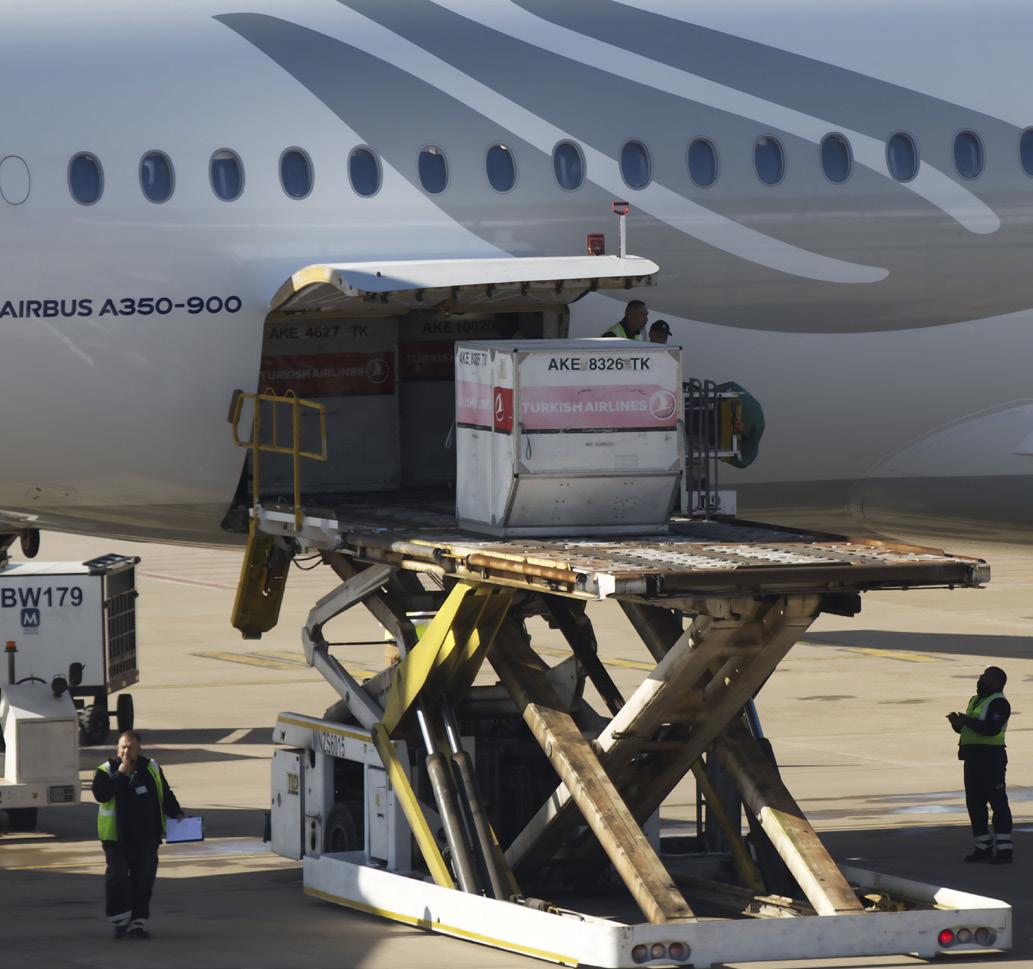
Polokwane’s proximity to popular tourist destinations such as the Kruger National Park and the Victoria Falls presents an opportunity for GAAL to promote the airport as a gateway for tourists visiting the region. Collaborating with local tourism authorities and airlines, we can work to increase awareness of Polokwane as a convenient entry point for exploring nearby attractions. By capitalising on Polokwane’s strategic location, GAAL can position the airport as a vital transportation hub serving both domestic and regional markets, thereby driving economic growth and development in the area.
Please tell us what developments GAAL has in store in the year to come.
GAAL will explore opportunities to introduce new routes from Polokwane International Airport to domestic and regional destinations. This will involve collaborating with airlines to identify underserved markets or emerging travel trends and launching direct flights to meet passenger demand. GAAL plans for infrastructure upgrades to enhance operational efficiency, safety and passenger experience. This includes terminal expansions, resurfacing of the runway and taxiway, upgraded baggage handling systems and the installation of modern amenities such as lounges and retail outlets. GAAL will invest in technology integration to streamline airport operations and improve the passenger journey. We will also be implementing self-service check-in kiosks, biometric authentication systems, mobile apps for flight updates and bookings and smart airport management solutions for real-time monitoring and decision-making. GAAL prioritises sustainability initiatives to reduce the environmental impact of airport operations. This includes investing in renewable energy sources, implementing energy-efficient lighting and HVAC systems, optimising waste management practices and promoting eco-friendly transportation options for passengers and employees.
There will also be joint marketing campaigns, incentive programmes for airlines and partnerships to develop tourism packages and attractions. We will engage in community outreach and development initiatives to foster positive relationships with local residents and businesses through educational programmes, job training opportunities, environmental stewardship initiatives and investments in community infrastructure and services such as PR Mphephu Airport in Thohoyandou.

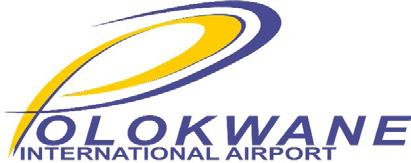
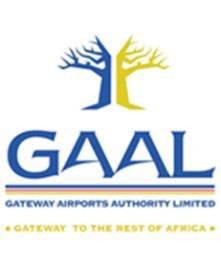
What makes PIA different?
• Location makes PIA a true gateway into Africa
• PIA is the first contact point from Europe or Africa into South Africa
• PIA gives easy and direct access to Kruger National Park, game farms and lodges in Limpopo covering the Waterberg and Mapungubwe
Passenger services
Three scheduled flights daily; charter flights; car rental, travel agencies and shuttle services; restaurant
Cargo services
• Future cargo hub
• Gateway into Southern Africa Development Community (SADC)
• Customised cargo facilities
• Future cold storage
Conference facilities
Flexibility, can accommodate 10 to 2 000 people; secluded; office space for rental; good prices
Our infrastructure
Category 7 international licence; varied hanger size; 945ha of land with potential to acquire more; two runways, 3 175m and 2 581m, four aprons with extensive parking capacity of 74 800 sq metres; air traffic control and navigational aids; customs and excise; fuelling services
Investment opportunities
• Category 9 licensing status
• Extension of runways
• Construction of warehousesNew passenger building
• Taxi way construction
• New tower
• Passenger terminal
• Cargo terminal
• Cold storage
• Cargo warehouse
• Available land for development
Contact GAAL
Polokwane International Airport, Gateway Drive, Polokwane
Tel: +27 15 288 0122
Website: www.gaal.co.za
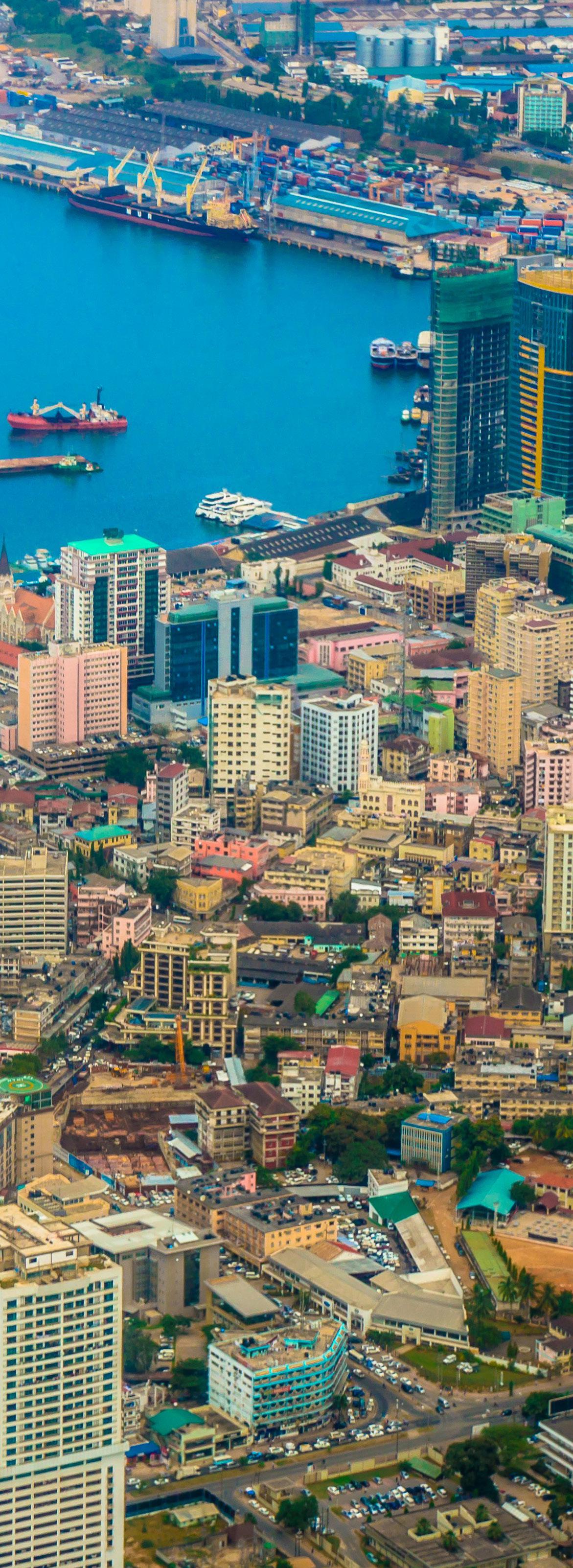
Gustav Mertz, Executive Vice President: Bulk and Corridors for Sub-Saharan Africa at DP World, outlined his company’s multi-corridor strategy when The Journal of African Business met up with him at the Investing in African Mining Indaba.
BIOGRAPHY
Gustav Mertz is Executive Vice President: Bulk and Corridors for SubSaharan Africa at DP World. Prior to this role, Gustav was Senior Vice President for KWS Logistics, a bulk transportation company owned by Imperial, a DP World Company. A 30-year veteran of the logistics and mining industries, Gustav has held senior management and directorships at companies including DAWN Limited, Metalmin Worldwide, Boart Longyear and Petzetakis Africa. His expertise lies in strategy development, supply chain management and optimisation and operations management. He holds a Bachelor of Commerce (Honours) degree in Transport Economics from the University of Johannesburg and has completed the Global Executive Development Programme at the Gordon Institute of Business Science
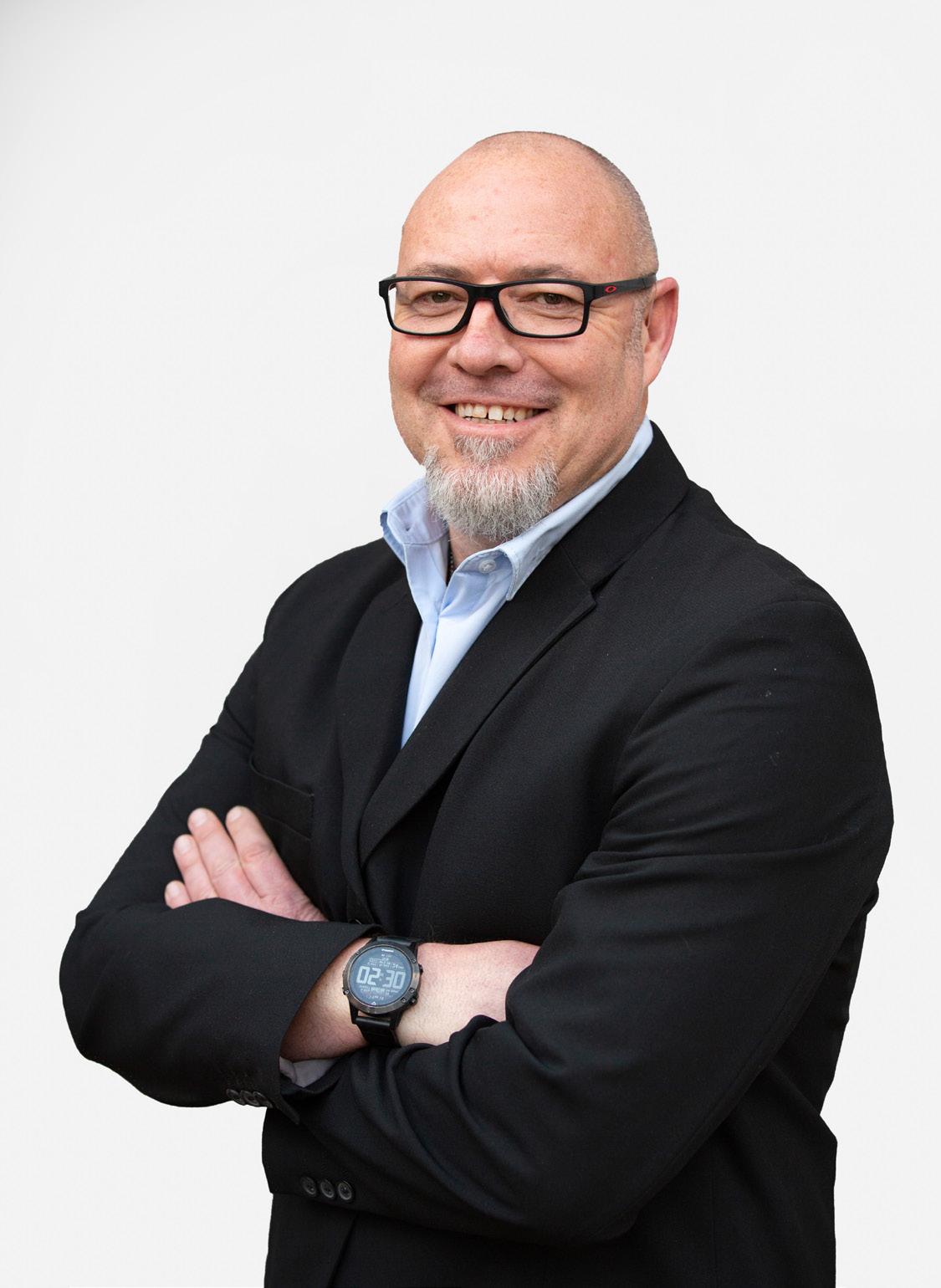
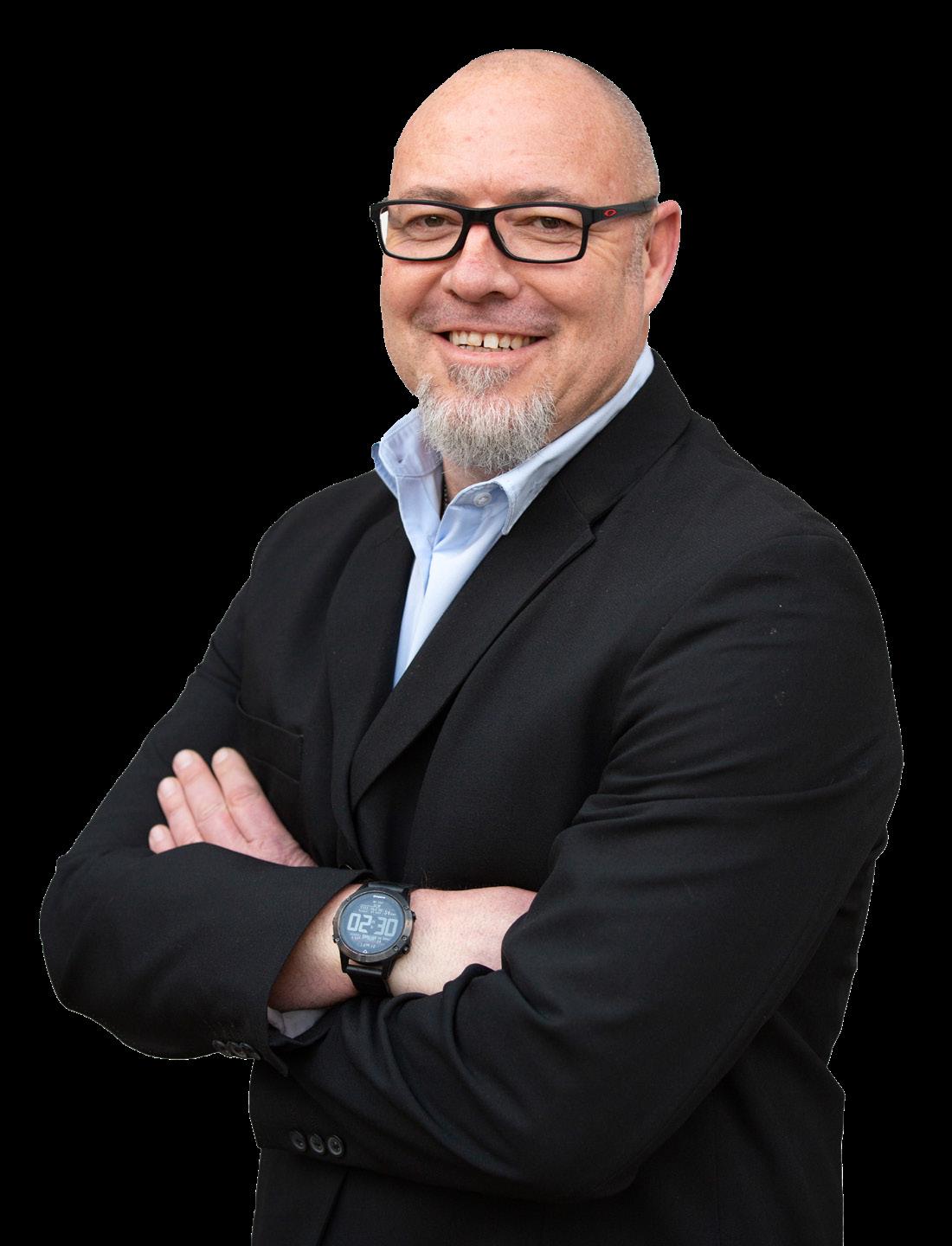
DP World has signed a 30-year concession agreement with the Tanzania Ports Authority (TPA) to operate and modernise the multi-purpose Dar es Salaam Port, connecting Tanzania and the wider region to global markets.
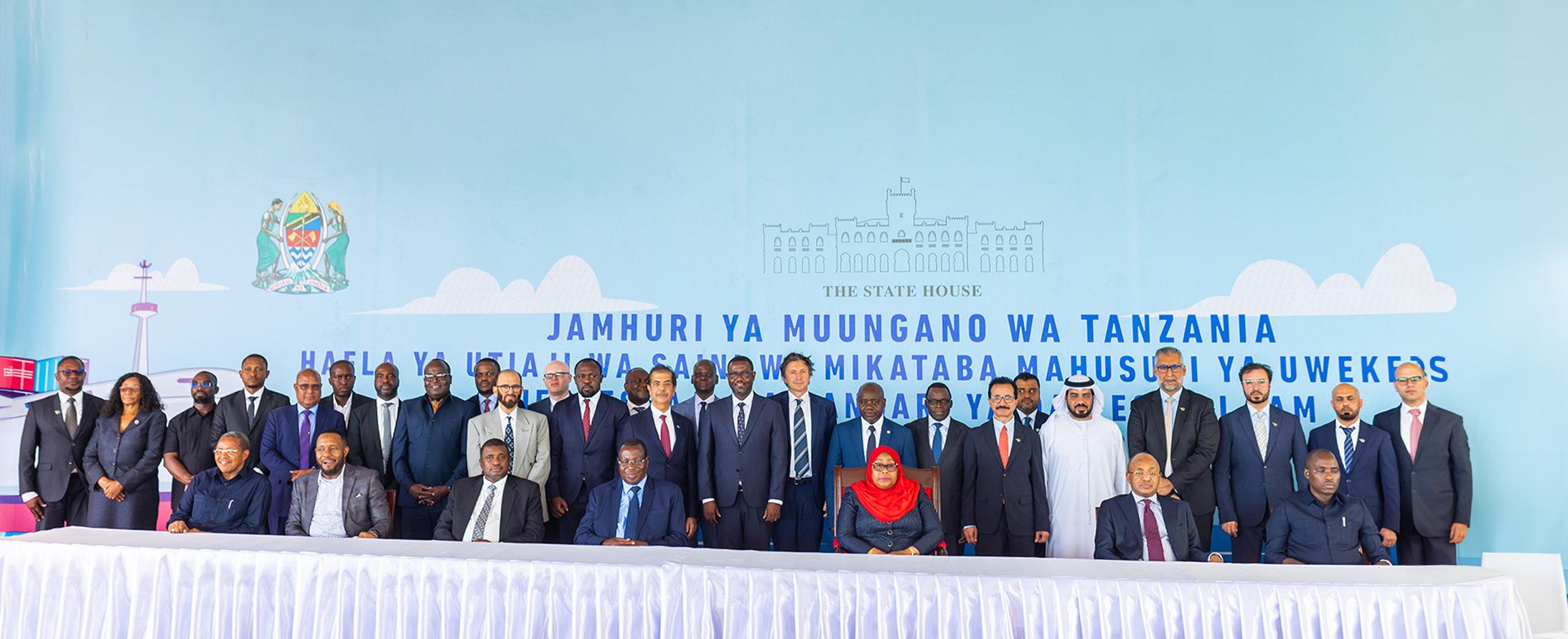
Please explain DP World’s movement into the worlds of golf and cricket as a sponsor.
It’s a fantastic opportunity for brand building and through our partnerships, we can grow these sports and drive positive community impact.
Have you been to some of these sporting events?
I attended the Nedbank Golf Challenge, which is part of the DP World Tour. It was great to host our clients at this event.
What are your plans for Africa?
We have big plans for Africa. We currently have a representation in 48 markets, either through our own operations or through agencies and partnerships. In our key markets, we are making significant investments.
And that is part of a growth trajectory?
Yes, these investments are key to our growth trajectory. We have made a large investment in Rwanda for example, and our Inland Container Depot there. We recently signed the Port of Dar es Salaam on a concession basis and we are investing further into the Maputo Port, so we are continuing to expand.
What is your view on the “positive disruption of logistics”?
Participating across the value chain is key. Ensuring that you can manage through the whole value chain is really how you disrupt, because you are creating a seamless flow of goods across borders. In this way, you generate trade collaboration between stakeholders and that is to the benefit of all involved. Our offering is “from factory floor to customer door”, or in the bulk-corridor space, it would be from “pit to port”. If you manage that whole process across borders and across modes of transport, that’s where the real benefit comes in.
Does that include the “last mile”?
This not part of the bulk and corridors offering, but we do offer this in our Contract Logistics business in South Africa and Namibia. Contract Logistics is primarily a warehousing and distribution offering. We also have a Market Access business offering route-to-market solutions.
Please expand.
Our Market Access solutions are designed to provide principals with direct access to consumers by integrating sourcing, sales, distribution and marketing and minimising their exposure to trade risk. We do this by assuming full ownership of inventory.
And because of your access you’re able to give smaller manufacturers who don’t want to take on risk the opportunity to get in?
Exactly. And multinationals too, specifically in the healthcare and consumer industries. We also do a lot of work for global healthcare organisations, giving people access to medicines.
Is your logistics business in the mining sector picking up in South Africa and Africa?
Yes, we are a fairly large player on the Copperbelt; the DRC and Zambia are some of our biggest markets. We have over 2 000 trucks running on those corridors. We specialise in transporting copper and cobalt. We also have a reverse logistics offering where we take chemicals back to the mines, so we have the ability to complete that flow.
What routes do you follow?
We have variability within our road network where we can offer customers multiple corridors. We have vehicles going out of the DRC and Zambia into Walvis Bay, or out of DRC and Zambia into Tanzania, to Beira and to South African ports. So, it’s a multi-corridor strategy.
In South Africa is that Durban and Richards Bay?
Durban mainly. Most high-value commodities go through Durban, as Richards Bay is more of a bulk port that is not really geared to handling containers.
Does the Copperbelt also have rail constraints like South Africa does?
Much of the rest of Africa has the same rail constraints but there is a route that recently opened towards the Port of Lobito in Angola, from the DRC. This is a rail concession that was financed by the international community (mainly the US). In December 2023 they ran their first trials on that line.
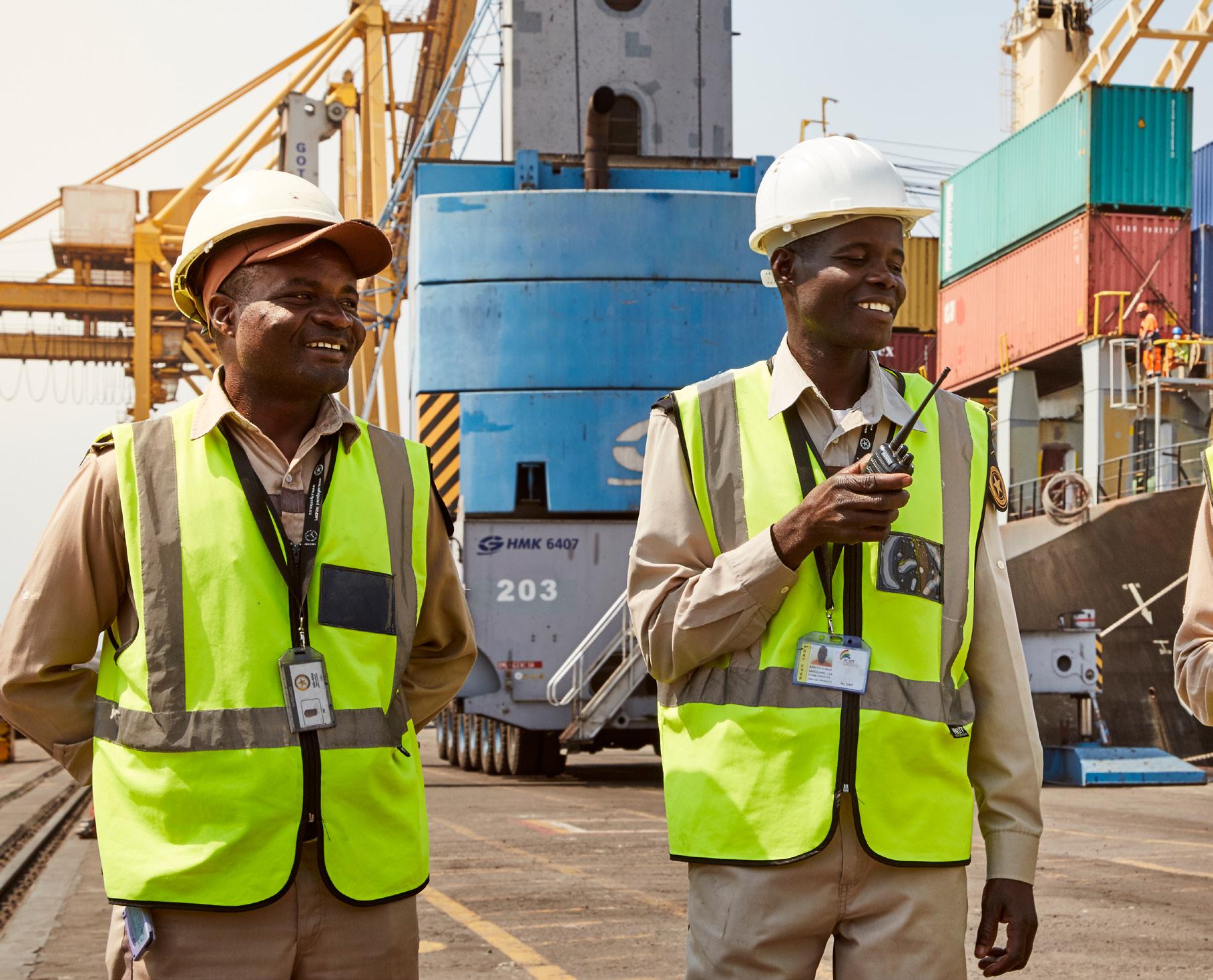
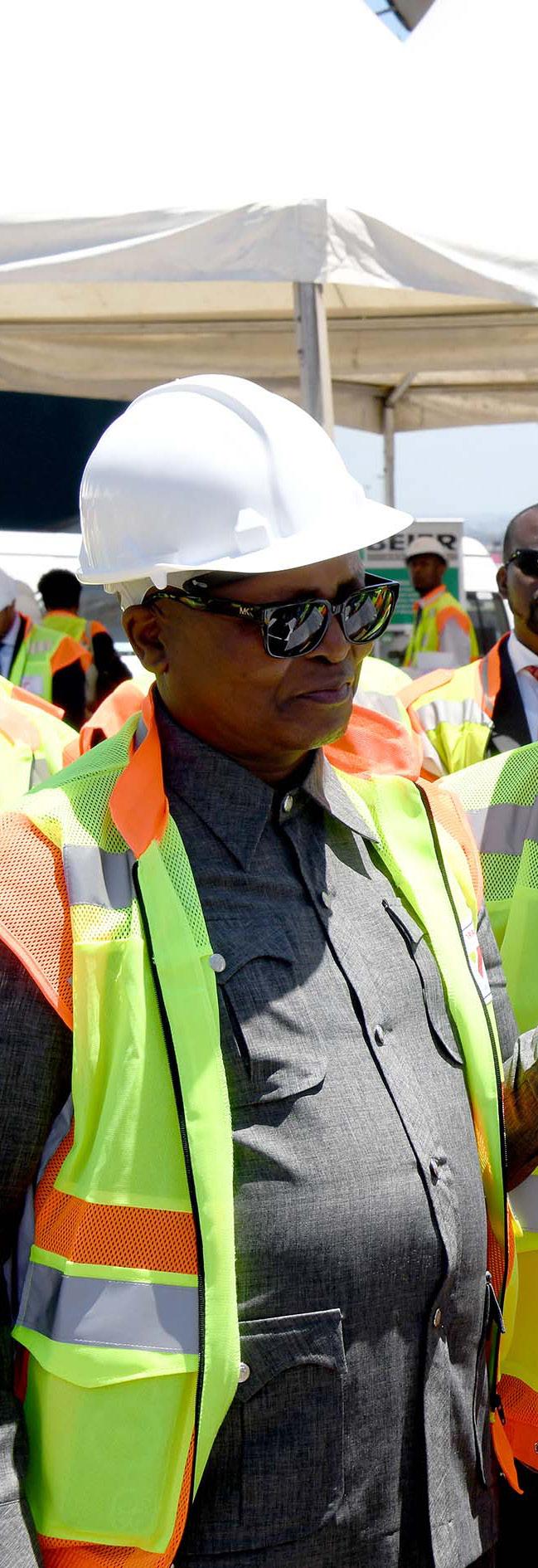
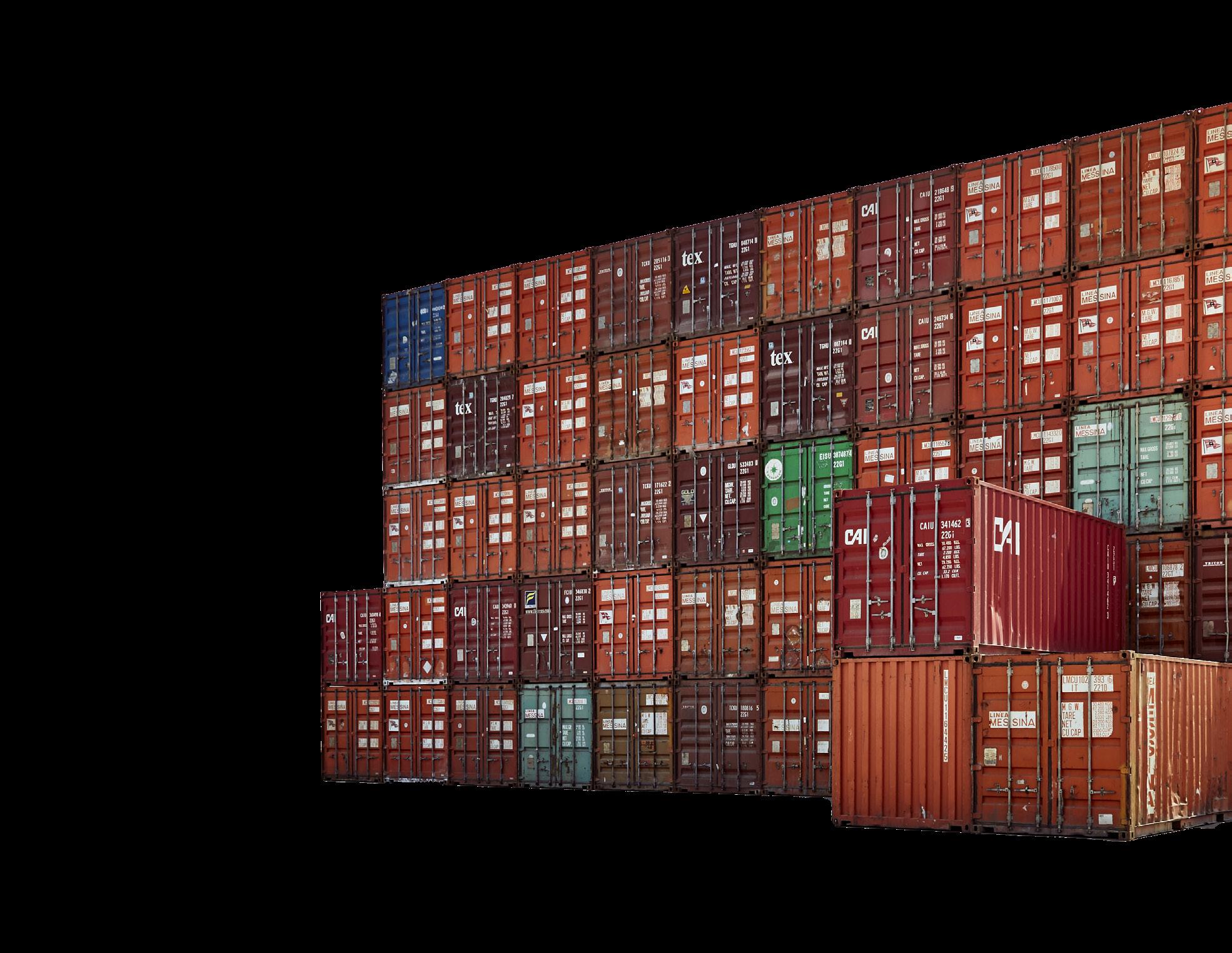
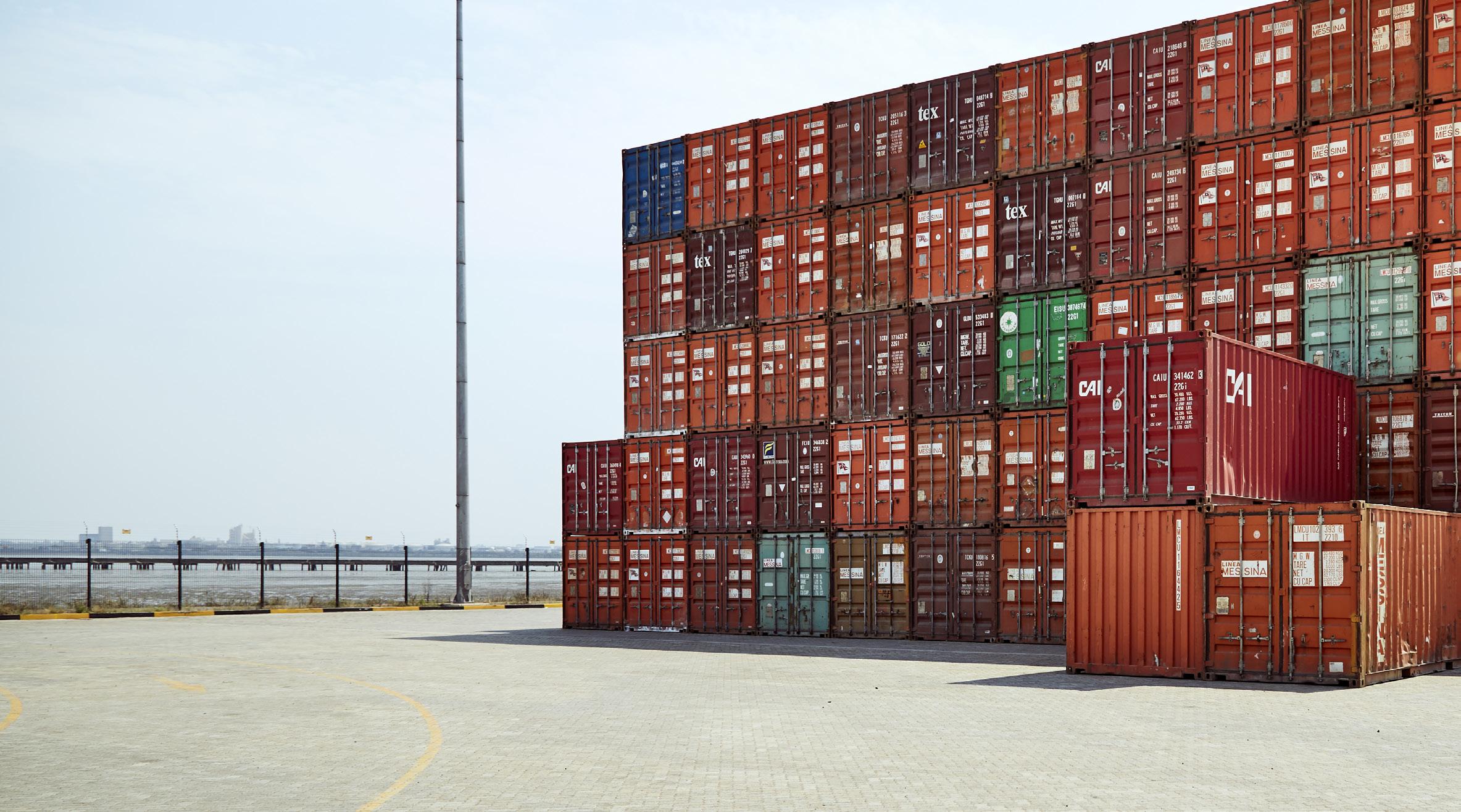
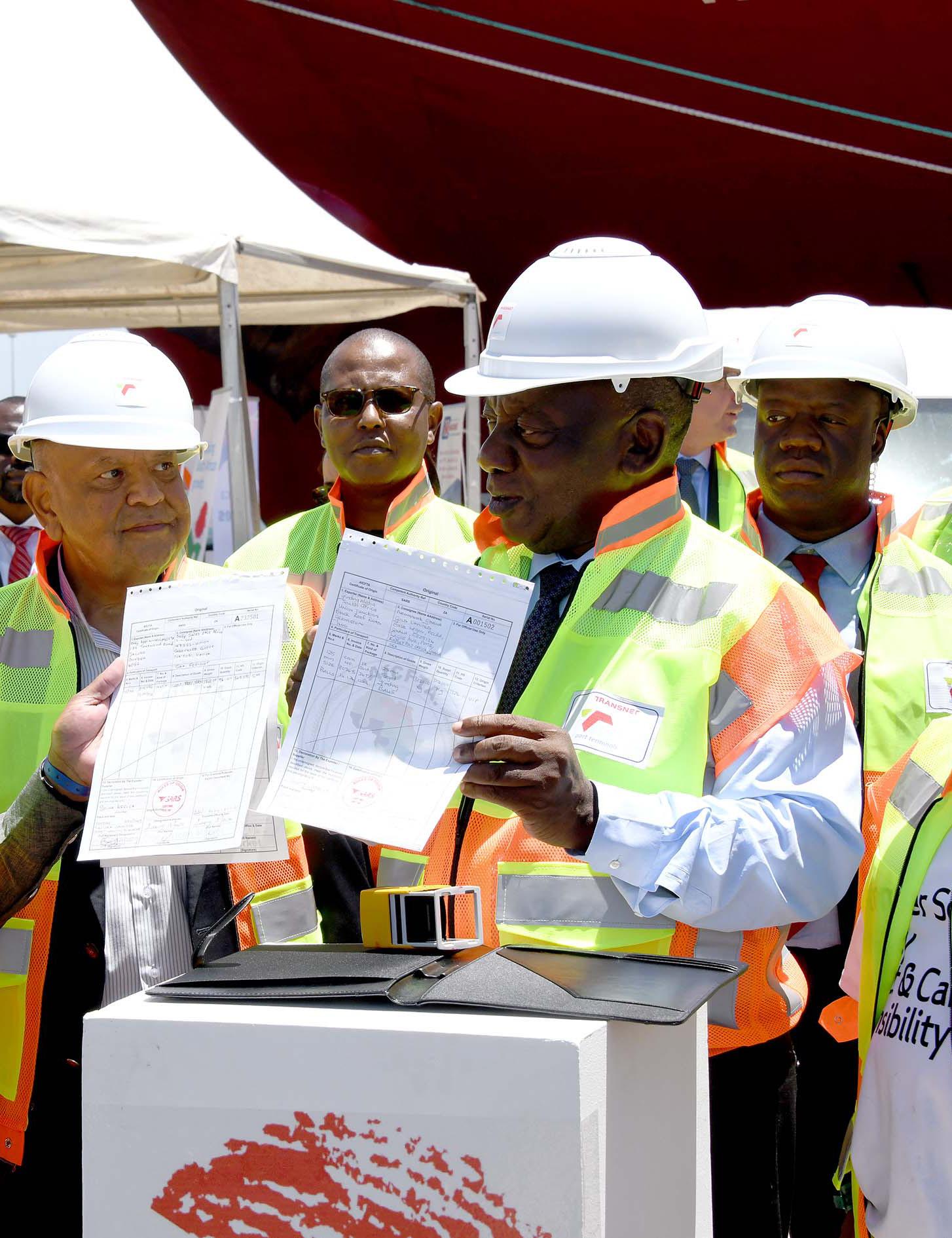
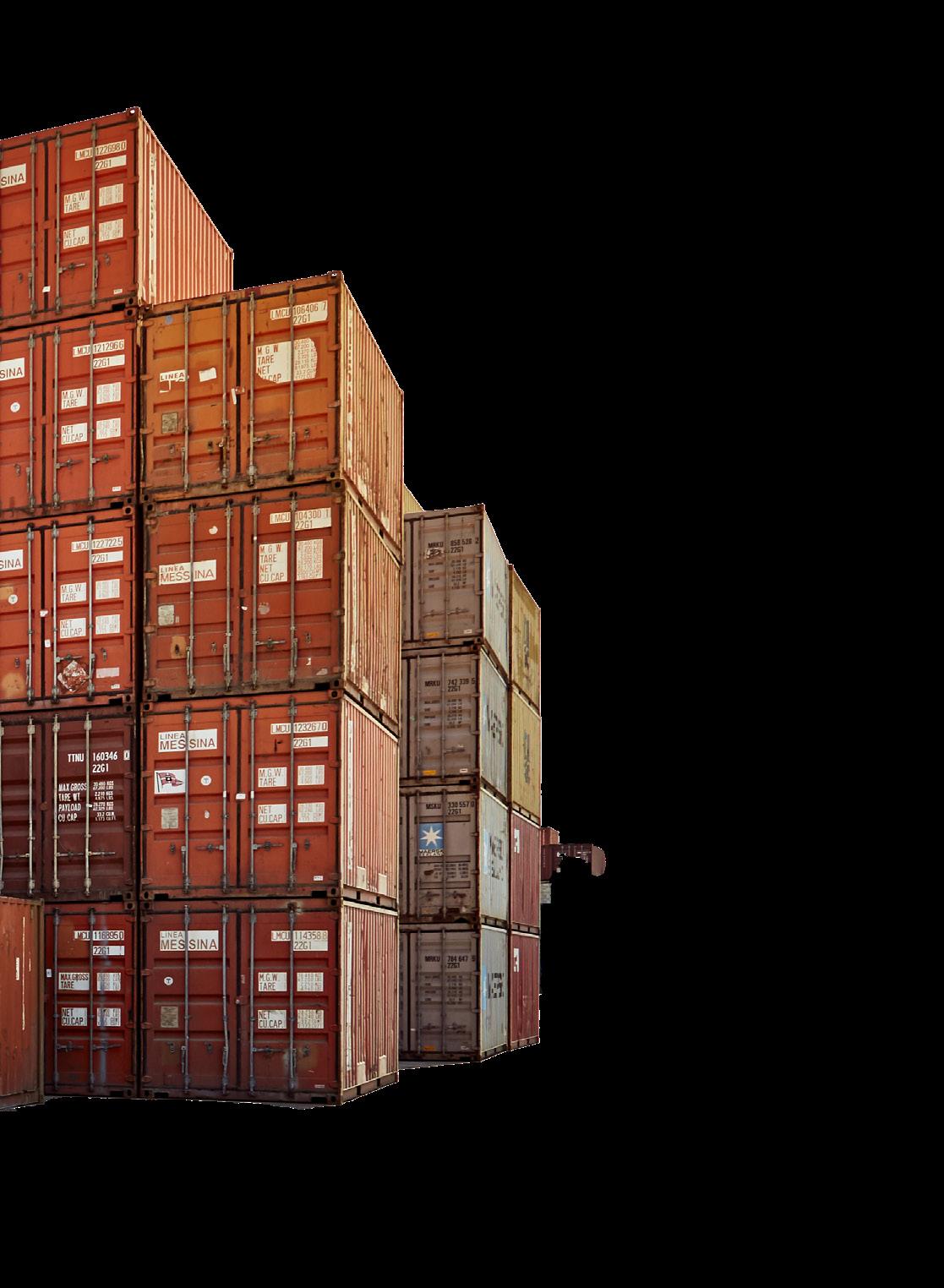
What sort of partnerships does DP World engage in?
We will act as a single point of contact, overseeing a client’s entire logistics solution, and manage through the entire supply chain. We partner with mining companies and service providers, and we will partner with state-owned enterprises (SOEs) if it makes sense in terms of the value that we create in the supply chain. On the corridor, we move the product by road, or it might go onto a multi-modal solution where it goes by rail for a portion of the journey. We then work with service providers that deliver warehousing, or work through our own facilities and clear the cargo onto the vessel for dispatch. We run the port services in a number of ports in the region, so we also handle the cargo in that environment.
So in Africa you don’t use rail services?
We don’t own rail in South Africa or elsewhere in Africa. In India we have a big presence where we manage some railways, but we don’t own the assets. They use our specialist knowledge in movement and scheduling.
Please comment on the future of trade in Africa in the context of AfCFTA. We strongly believe that there are big opportunities in Africa to integrate continental markets, specifically through the African Continental Free Trade Area agreement. Not only will this help with trade, but with industrialisation, investment and new opportunities on the continent.
Do you see movement on AfCFTA?
Earlier this year, South African President Cyril Ramaphosa was in Durban seeing off a shipment to Ghana. He is taking the lead in trying to progress the agreement. I think there is a general willingness to move things forward, although we have a way to go.
But the signs are encouraging?

Yes definitely, there’s a willingness to make this work. I think it will take time to get it fully working but President Ramaphosa is taking the initiative.
What makes DP World stand out?
Our end-to-end solution offers our customers improved security, better customs procedures and it drives efficiency in the process. We really focus on the full supply chain. We also use control tower technology that gives us clearer visibility in terms of critical bottlenecks. This allows us to adjust the process in order to eliminate delays and to allocate capacity to a specific corridor to ensure that we can move those volumes.
That suggests that you have been investing in technology. Technology has revolutionised the way we do business and we believe in investing in disruptive tech that helps us provide the most effective and efficient solutions for our customers.
Do you have any concrete targets for South Africa and Africa or do you just want to keep growing?
We are very clear on the areas that we are currently exploring further. For our bulk and corridors business, we aim to expand activity on existing corridors, and grow activity around our current operations. For example, Tanzania is a focus for us since signing the 30-year Dar es Salaam Port Concession in October 2023, and there has been a lot of infrastructure development and investment going into this operation. At the Maputo Port, where we run the container operations, we are also excited about a recent announcement by the government of Mozambique that advises of further expansion of the port. This will further solidify the port’s position as a pivotal trade hub for Southern Africa.

The African Water Facility, hosted by the African Development Bank, will distribute the money to boost water provision in Africa.
TThe United States Agency for International Development (USAID) has committed $3-million to the African Water Facility (AWF). The funding will support the preparation of water and sanitation investment projects in Africa, through the provision of grants and technical assistance to African countries and regional economic communities.
The African Water Facility, an initiative of the African Ministers Council on Water (AMCOW), is hosted by the African Development Bank. It is the only African project-preparation facility solely focused on addressing water and sanitation issues in Africa. It helps African countries achieve the objectives and targets set by the water-related Sustainable Development Goals and African Water Vision 2025. It does this by the preparation of innovative water and sanitation projects across the continent.
Access to water and sanitation in Sub-Saharan Africa remains poor. Approximately 400-million people lack basic water supply services, while over 700-million people have no access to decent sanitation. Nearly 200-million people still practice open defecation and 750-million people have no access to hygiene. Achieving water security and sanitation for all requires large-scale investment in water supply and sanitation, improved governance of water resources and operations, and the design of climateresilient infrastructure.

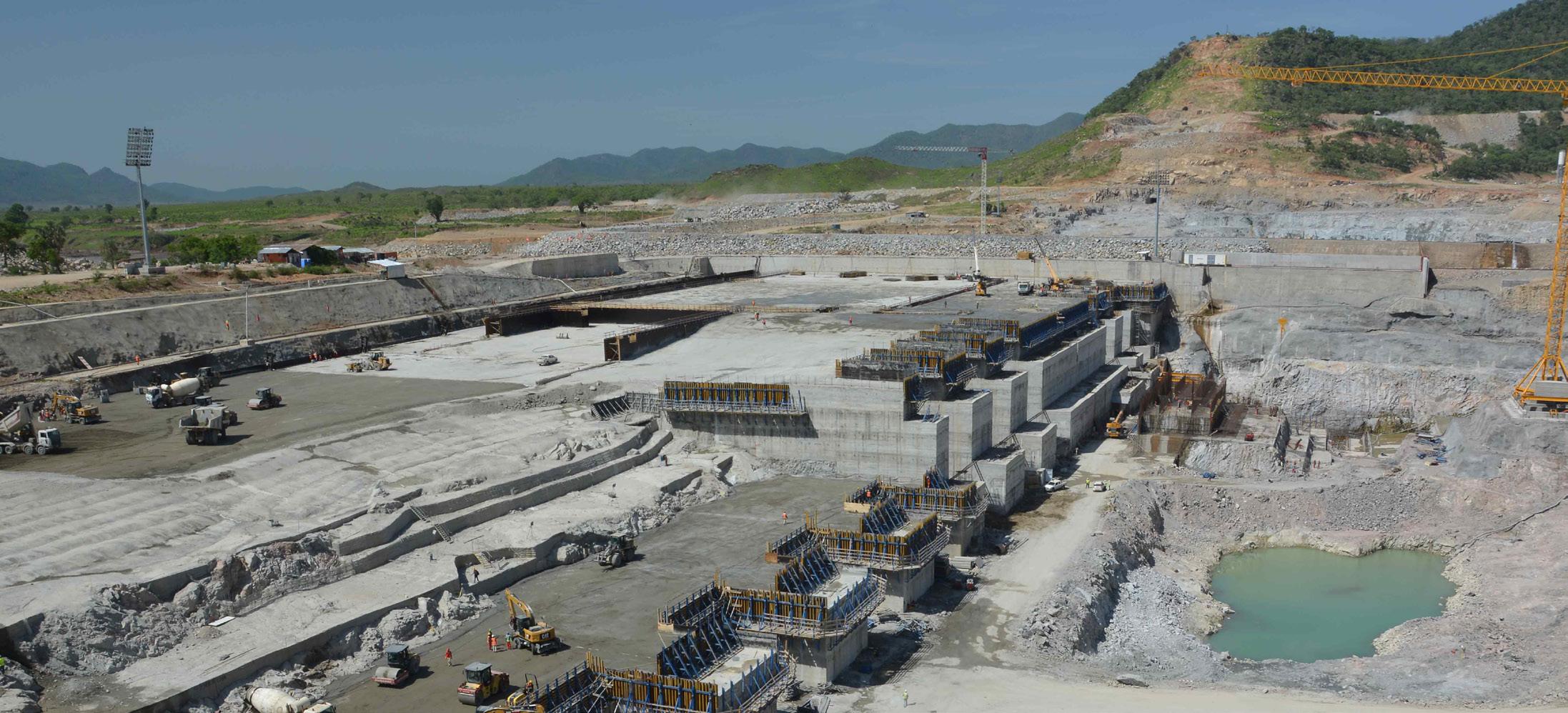
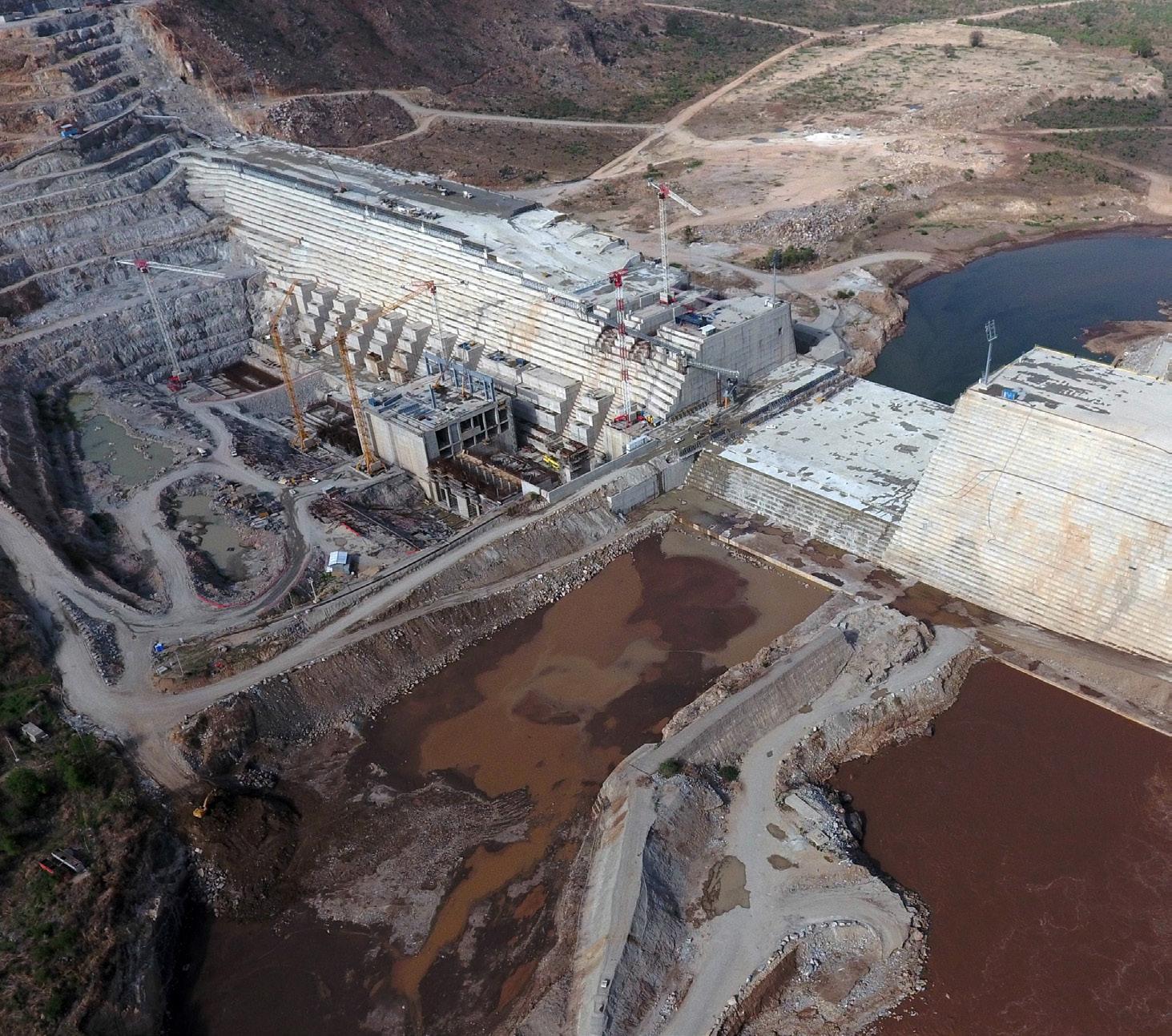
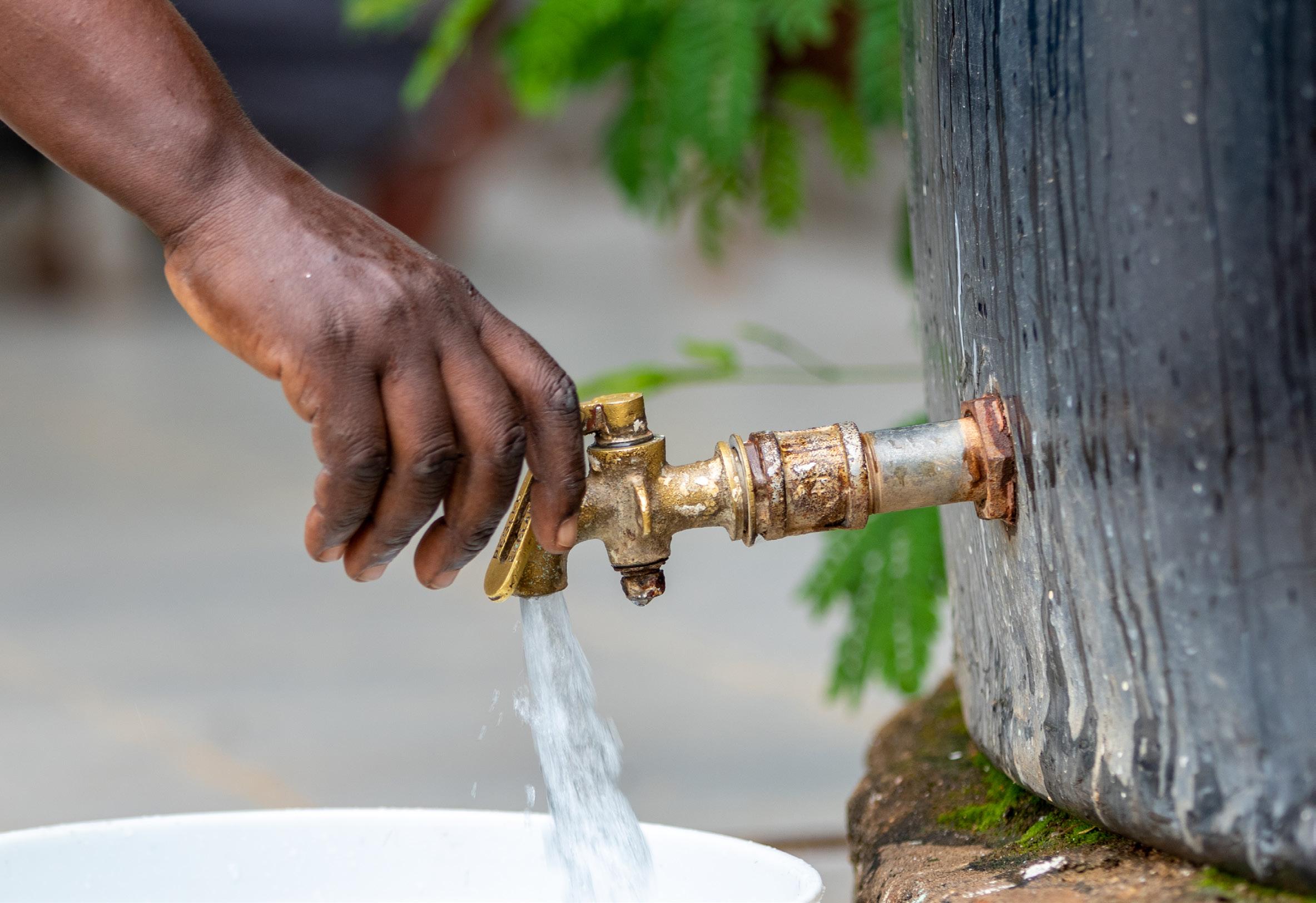
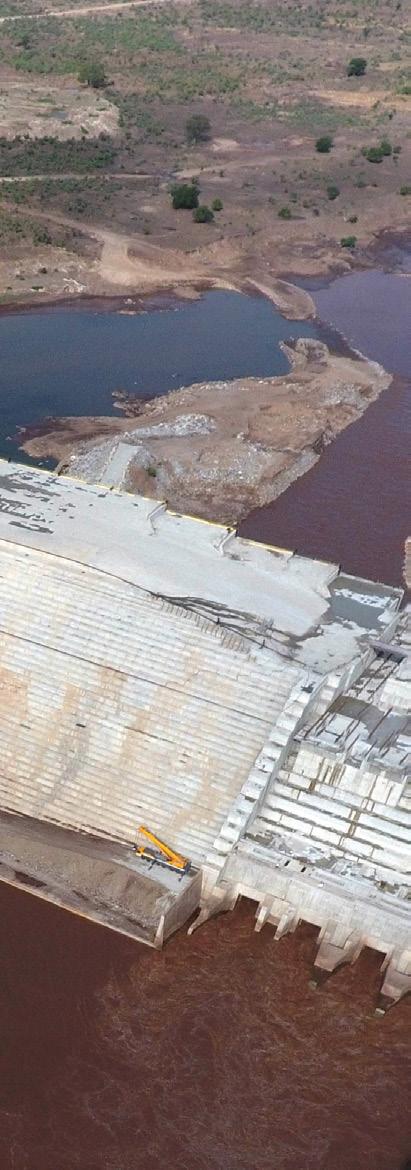
Since inception, the African Water Facility has provided €205-million in grant funding for water and sanitation projects in Africa and enabled over €1.7-billion in downstream investment in the water and sanitation sector. “This USAID financing affirms growing international support for the African Water Facility as a trusted partner and resource for Africa’s water sector. We thank the United States for the funding commitment that will contribute to scaling up the Facility’s work and positively impacting more people across the continent,” said Dr Beth Dunford, African Development Bank’s Vice President for Agriculture, Human and Social Development.
Under its 2022–2027 Strategy, USAID aims to reach 22-million people with access to safe drinking water and 22-million people with access to sanitation over five years. The African Water Facility is raising millions of euros to develop investments that will accelerate public and private sector financing of the water sector and deployment of innovation to improve service delivery.
The support from USAID came in the lead-up to its 2023 funding dialogue in Paris, where the facility engaged donors, beneficiary governments, multilateral and international organisations to enhance financing for water and sanitation investment projects in Africa.
“The negative impacts of inadequate access to water and sanitation and poor management of water resources are seen in many countries in Africa. The
For more information:
African Development Bank Group: www.AfDB.org
The United States Agency for International Development (USAID): www.GlobalWaters.org
African Water Facility exists to accelerate viable, climate responsive investments by providing grants, technical assistance and developing catalytic and innovative projects to improve water and sanitation service delivery and water governance in Africa,” Mtchera Chirwa, Coordinator for the African Water Facility, said.
The Facility’s revised Strategic Plan 2017–2025 will endeavour to mobilise resources to increase the delivery of bankable investment projects in water and sanitation across the continent. This is expected to enable access to climateresilient and safely managed water supply for 2.6-million people and provide basic sanitation facilities to 2.4-million people.
The African Development Bank Group is Africa’s premier development finance institution. It comprises three distinct entities: the African Development Bank (AfDB), the African Development Fund (ADF) and the Nigeria Trust Fund (NTF). On the ground in 41 African countries with an external office in Japan, the Bank contributes to the economic development and the social progress of its 54 regional member states.

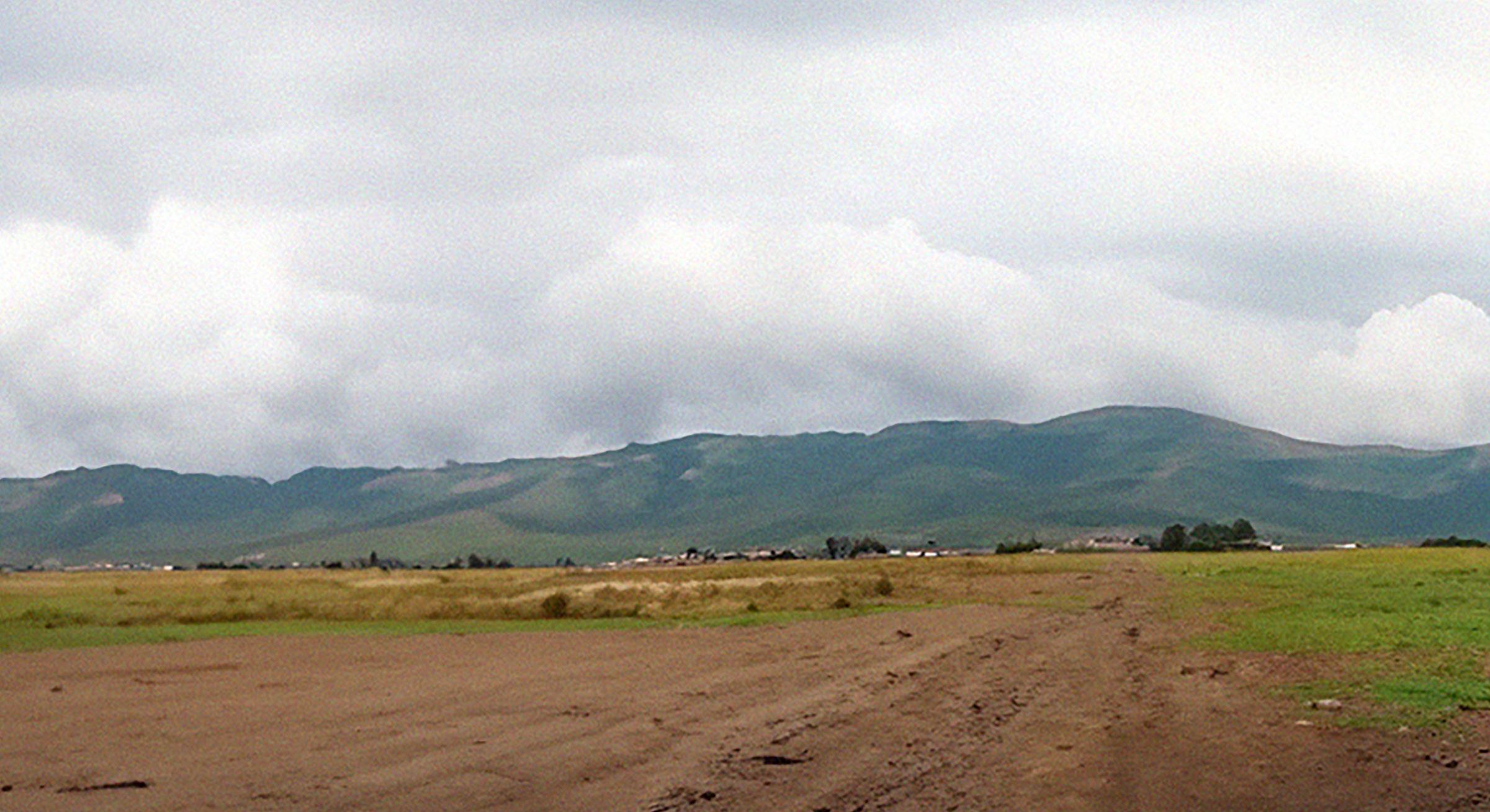
By Tshidi Ramogase, Coca-Cola Beverages Africa’s Chief Public Affairs, Communications and Sustainability Officer
AAfrica’s vulnerability to climate change was once again demonstrated in late 2023 when torrential rains swept across much of East Africa, bringing devastating floods just six months after a record-breaking five-season drought in the region.
Vast areas of farmland in Kenya, Ethiopia and Somalia were inundated, washing away homes and destroying thousands of hectares of crops.
These events highlight the urgency of improved water security and climate resilience on the continent. Coca-Cola Beverages Africa (CCBA) partners with governments, the private sector, NGOs and communities to promote water security. Water is a priority for CCBA because it is essential to life, our beverages and the communities we serve.
The Coca-Cola Company’s 2030 Water Security Strategy is focused on accelerating the actions needed to increase water security where we operate, source ingredients and touch people’s lives. We invest in water initiatives that benefit nature and communities. This includes projects that provide benefits to local watersheds that supply water for drinking, agriculture and manufacturing, restore and conserve habitats for plants and animals and offer opportunities for local economic development.
As part of this work, we collaborate with partners to understand the inextricable link between water, climate, agriculture and biodiversity.
In addition, many of our water-replenishment projects have additional co-benefits such as helping improve soil health, sequester carbon, conserve water, restore degraded lands, contribute to biodiversity and mitigate climate change.
Replenish and regenerate
Our work is organised to address water security inside our operations, in our watersheds and in our communities. Also, we continue to replenish the water we use in our finished beverages to nature and communities.
Inside our operations, the Coca-Cola system is committed to regenerative water use. This means using less water as well as re-using and treating wastewater.
For example, in Kenya we opened a new wastewater treatment plant at our Equator Bottlers plant in Kisumu, which will promote more sustainable water use and help reduce the
factory’s environmental impact. The new plant will enable us to treat and recycle wastewater generated from the production facility, which will be used for non-potable purposes such as irrigation and cleaning. Our subsidiary, Coca-Cola Beverages Botswana, signed an agreement last year with the Botswana University of Agriculture and Natural Resources to donate water from its newly installed water-treatment plant for agricultural irrigation at the campus. The new state-of-theart water-treatment plant has made the company fully effluent compliant by ensuring that clean water is returned to the environment. We also aim to improve the health of watersheds identified as most critical for our operations and agricultural supply chain by supporting nature-based solutions, investing in landscape solutions and helping farmers to use less water.
CCBA in Kenya has been actively engaged over the past three years in reforesting 90 hectares of critical forests that play a significant role in Nairobi’s water catchment areas in collaboration with implementing partner, Nature Kenya.
When it comes to communities, we aim to help provide access to safe water, sanitation and hygiene (WASH) and advocate for good water governance.
Our South African bottler, Coca-Cola Beverages South Africa (CCBSA), supported good water governance in Grabouw in the Western Cape, where the municipality was losing a significant amount of its potable water due to leaks and failing infrastructure. Through this partnership, we trained young community members in plumbing to support the rehabilitation of water infrastructure, including fixing leaks in informal areas.
In response to a looming Day Zero in parts of the Eastern Cape province in South Africa, CCBSA deployed off-grid, solarpowered groundwater harvesting and treatment projects called Cokevilles in the region. A total of nine systems, or water tanks, have been deployed in Gqeberha and similar Cokeville projects have been installed in other peri-urban and rural communities in Limpopo, Gauteng, Eastern Cape and KwaZulu-Natal. We do business the right way as a trusted partner for sustainable growth by managing packaging waste, water stewardship and economic inclusion, particularly for women and youth. We are committed to making a positive impact on people’s lives and communities for a better shared future in Africa.

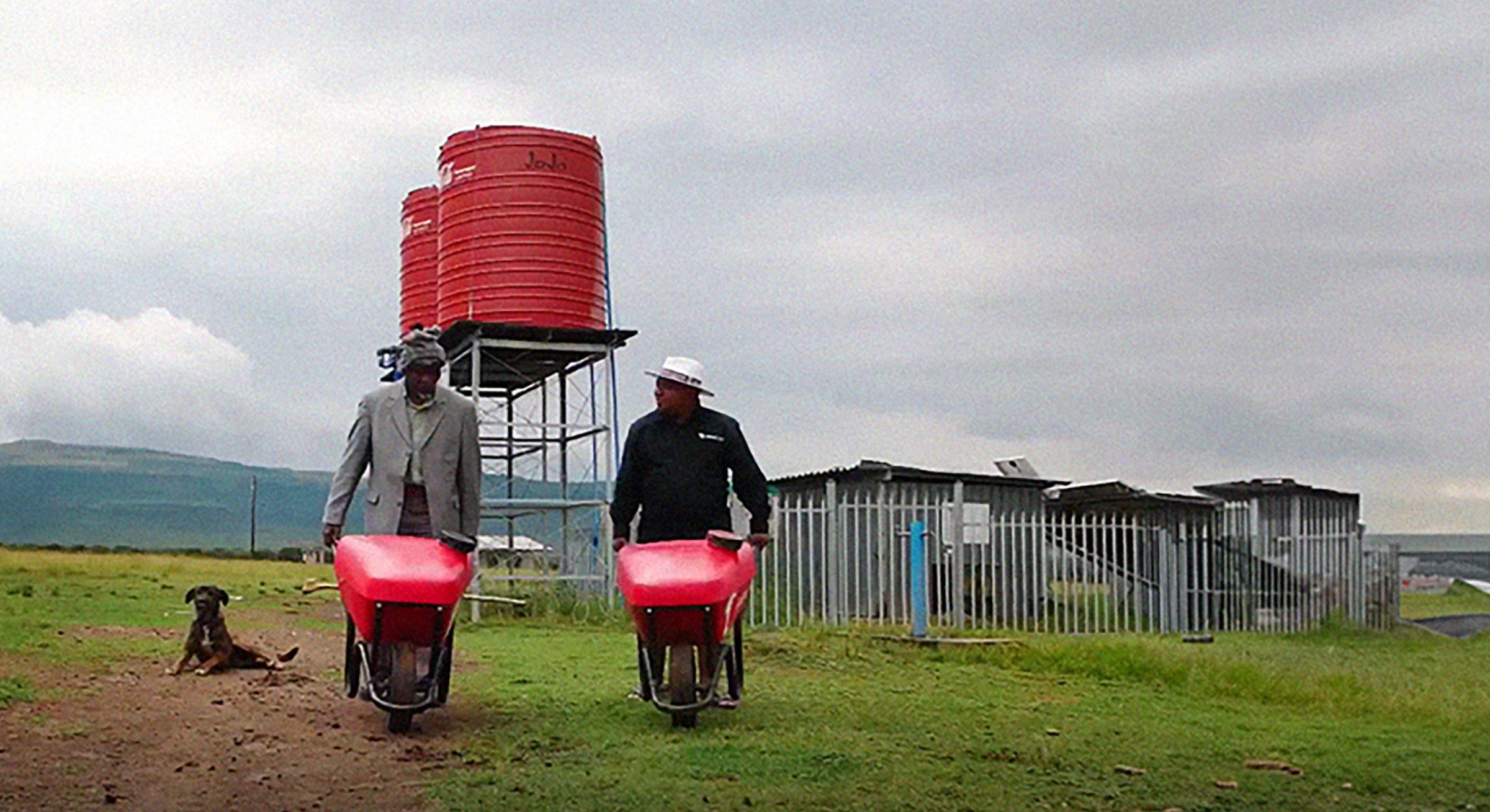
CCBA is the eighth-largest Coca-Cola bottling partner in the world by revenue, and the largest on the continent. It accounts for over 40% of all Coca-Cola products sold in Africa by volume. With over 18 000 employees in Africa, CCBA services more than 720 000 customers with a host of international and local brands. The group was formed in July 2016 after the successful combination of the Southern and East Africa bottling operations of the non-alcoholic ready-todrink beverages businesses of The CocaCola Company, SABMiller plc and Gutsche Family Investments. CCBA shareholders are currently: The Coca-Cola Company 66.5% and Gutsche Family Investments 33.5%. CCBA operates in 15 countries, including its six key markets of South Africa, Kenya, Ethiopia, Uganda, Mozambique and Namibia, as well as Tanzania, Botswana, Ghana, Zambia, the islands of Comoros and Mayotte, Eswatini, Lesotho and Malawi.

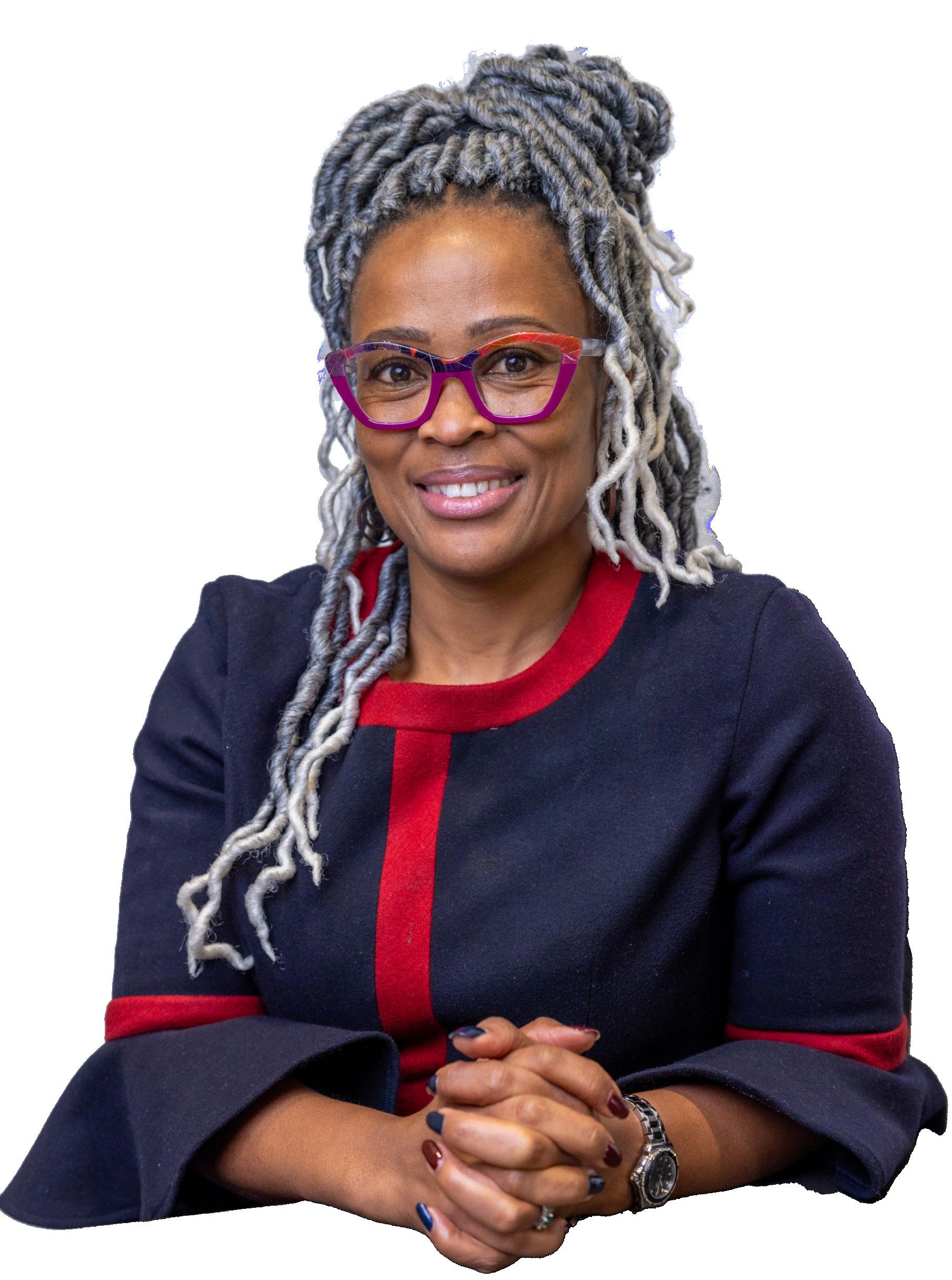
In the context of the Invest in African Energy forum held in Paris in 2024, hosts and organisers Energy Capital & Power published a continental overview of the state of the latest developments in technology and investment regarding aspects such as green hydrogen, LNG, renewables and carbon capture.
EEuropean partners have been vocal about plans to boost clean, smart and secure investments in Africa’s energy sector, with the EU’s Global Gateway Initiative aiming to mobilise €150-billion across the continent by 2027. Motivations for this range from securing the bloc’s own energy supplies, strengthening energy diplomacy on the continent, to generating high returns on critical infrastructure investments. Given Europe’s focus on sustainable energy development, the Invest in African Energy (IAE) forum which took place in Paris was a showcase for the European and global private sector what opportunities there are on the continent to develop and advance natural gas, renewable energy, green hydrogen and decarbonisation technologies, with a view to supporting Africa’s role in the global energy transition.
As Africa looks to develop its gas for domestic and export markets, LNG represents a critical investment avenue for European partners and investors. Representing a relatively clean-burning fossil fuel that can deliver energy reliably and to scale, LNG has been positioned as the fuel of the future and the key to meeting rising energy demand in Africa and globally.
European majors and independents are already at the helm of developing world-class LNG facilities across the continent, from bp’s Greater Tortue Ahmeyim LNG in Senegal and Mauritania, to Perenco’s Cap Lopez LNG Terminal in Gabon, to Eni’s Congo LNG in the Republic of Congo. The continent features myriad opportunities in the exploration, transport, processing and storage of natural gas and associated EPC contract value in establishing integrated gas value chains.
Africa’s solar potential is measured at 7 900GW – more than 1 000 times its current solar generation capacity – while wind potential is measured at 461GW, which equates to 100 times the current wind generation capacity. The continent is home to considerable technical potential for hydropower, which accounts for approximately 17% of its electricity generation on average, and is set to overtake Europe in installed geothermal capacity by the end of the decade.
Given Africa’s prolific energy needs, decentralised power solutions, particularly from renewables, hold the capacity to help electrify rural parts of the continent, while aligning with net-zero targets.

Owing to its substantial and often co-located renewable resources, Africa provides optimal conditions for the development of green hydrogen and green ammonia, estimated to be able to produce a surplus of 20-million tons to 40-million tons of green hydrogen per year by 2050. The continent is home to several major green hydrogen projects, namely, the 15GW Aman project in Mauritania, the 3GW Tsau Khaeb project in Namibia and the 4GW SCZONE project in Egypt. Germany has emerged as an active player in this domain by investing in and lending technical expertise to hydrogen development in Angola, Mauritania and Namibia, as well as pledging to invest €4-billion in sustainable energy projects in Africa, including renewable power, green hydrogen and critical raw mineral extraction, by 2030. The EU is targeting 10-million tons of imported renewable hydrogen per year by 2030, offering development finance and production subsidies to help African countries develop their green hydrogen supplies.


Capturing carbon dioxide produced from burning fossil fuels or as a by-product of industrial manufacturing processes, CCUS technology represents a dynamic investment opportunity within Africa’s energy transition. It holds a wide range of applications, from enhanced oil recovery to fuel production to waste-to-energy plants, and aligns with Africa’s decarbonisation goals, while enabling muchneeded energy production. CCUS projects are already underway in South Africa’s Mpumalanga Province where it will capture carbon dioxide from coal-fired power stations and at Egypt’s Meleiha Field, part of a broader $25-million, multi-phase CCUS project. CCUS aligns closely with the EU’s broader decarbonisation goals and represents a strategic area of potential collaboration between European and African service providers by way of sharing best practices, technical expertise and technological innovation.

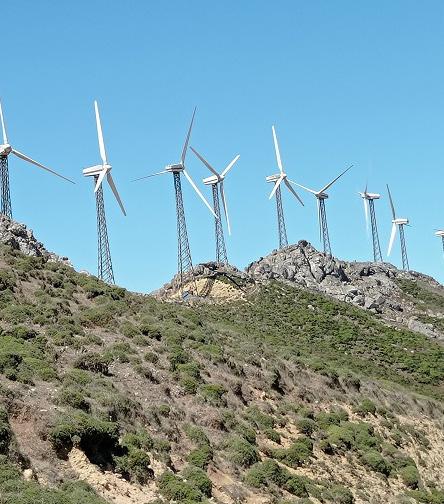



































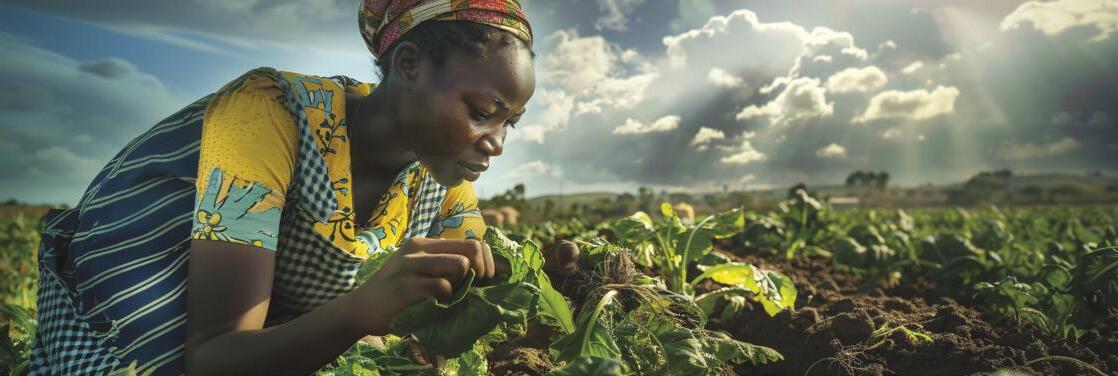








Since its establishment in July 2023, the Energy One Stop Shop has been on a remarkable journey, making significant strides in its key priorities, for energy security fit for purpose. We’ve successfully mobilised funding to revolutionize the energy landscape, transforming it into a sustainable, scaled-up, and capacity-building sector. This transformation is set to benefit both industrialisation and primary consumption for households across the country.
Since its establishment in July 2023, the Energy One Stop Shop has been on a remarkable journey, making significant strides in its key priorities, for energy security fit for purpose. We’ve successfully mobilised funding to revolutionize the energy landscape, transforming it into a sustainable, scaled-up, and capacity-building sector. This transformation is set to benefit both industrialisation and primary consumption for households across the country.
To date, EOSS has been tracking 114 projects received from the Presidency and have unlocked 41 challenges related to licences or permits for energy-generating projects at national, municipal and SOE levels. Four projects are operational and effectively providing 78MW of energy, and nine (774,5MW) are in the development pipeline (at financial close or construction stages).
To date, EOSS has been tracking 114 projects received from the Presidency and have unlocked 41 challenges related to licences or permits for energy-generating projects at national, municipal and SOE levels. Four projects are operational and effectively providing 78MW of energy, and nine (774,5MW) are in the development pipeline (at financial close or construction stages).
The EOSS Team is currently tracking 54 projects, but we are aware of the challenges presented to IPPs. It is our priority to:
The EOSS Team is currently tracking 54 projects, but we are aware of the challenges presented to IPPs. It is our priority to:
• Develop and pilot the Single Window Application Process (SWAP)
• Develop and pilot the Single Window Application Process (SWAP)
• Integrate Municipal Mapping and Standardisation of process as they relate to Energy Projects into SWAP
• Integrate Municipal Mapping and Standardisation of process as they relate to Energy Projects into SWAP
• Unlock and report on the challenges encountered by Developers
• Unlock and report on the challenges encountered by Developers
• Add unlocked projects to the Development Pipeline (at financial close and construction phases)
• Add unlocked projects to the Development Pipeline (at financial close and construction phases)
Energy is a key sector that will transform the economy of our country and align it with the aspirations of our citizens. Over the next year, we will fast-track all applications for energy projects across all nine provinces to support small-scale embedded generation (SSEG) power projects (under schedule 2 of the Electricity Regulation Act) to realise energy security and to support efforts to decarbonise South Africa’s economy.
Energy is a key sector that will transform the economy of our country and align it with the aspirations of our citizens. Over the next year, we will fast-track all applications for energy projects across all nine provinces to support small-scale embedded generation (SSEG) power projects (under schedule 2 of the Electricity Regulation Act) to realise energy security and to support efforts to decarbonise South Africa’s economy.
Lester Bouah
Lester Bouah
Head: Energy One Stop Shop lbouah@thedtic.gov.za | +27663020715 | www.energyoss.gov.za
Head: Energy One Stop Shop lbouah@thedtic.gov.za | +27663020715 | www.energyoss.gov.za
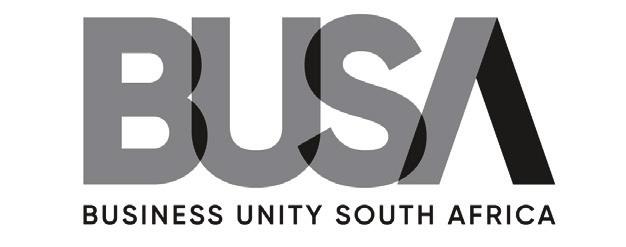











































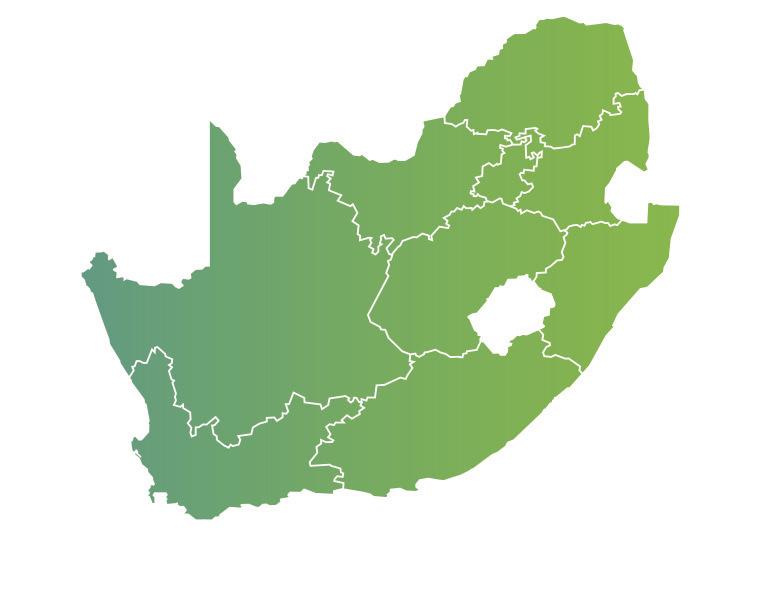
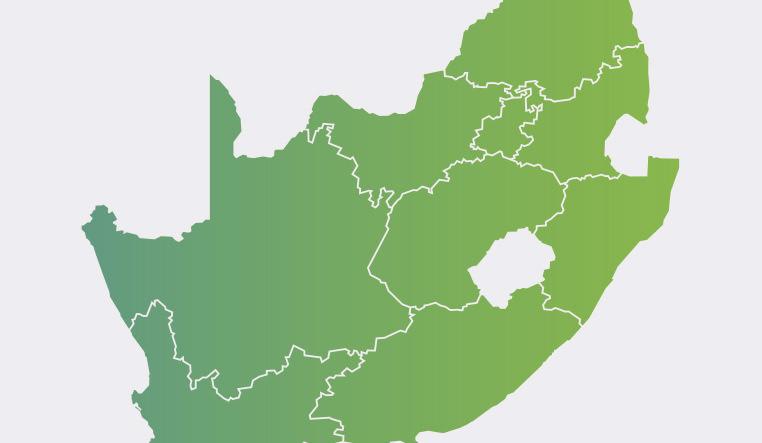


The world should look to small businesses as the solution to sustainable growth and development in Africa, according to Matthew Cumming, Regional Investment Manager: East Africa Business Partners Limited.
SSeveral economic analysts and financial sector experts have identified Africa as the next frontier for growth and development. Currently, the continent has the youngest population in the world, with a median age of 18.8 years as of 2022. This, coupled with the fact that several of its markets are nearing maturity, signifies a golden opportunity for businesses to take the lead in stimulating economic growth. Powered by this momentum, African small businesses are the key to provide solutions to address some of the continent’s most pressing challenges.
This is the opinion of Matthew Cumming, Regional Investment Manager: East Africa at small and medium-sized enterprises (SME) financier firm, Business Partners Limited, who believes that Africa’s SME sector is one of the vital cogs that have the potential to drive the engine of economic growth and bring about innovation on the continent. Furthermore, as he says, “SMEs represent immense value in terms of their ability to bring about much-needed socioeconomic transformation and help set Africa up as a serious contender on the global playing field.”
Unpacking some of the key reasons why the development of the SME sector is vital to the future of the continent, Cumming references the sector’s job creation capability as one of its most valuable contributions. “Small businesses represent far more than a healthy GDP – they represent the promise of a viable livelihood. And in African countries, where families are typically larger than other regions, a single job could sustain multiple people.”
According to the most recent estimates, African small businesses are responsible for up to 80% of jobs across the continent. Considering that Africa’s population is set to double by 2050, to an estimated 2.4-billion, the demand for jobs is imminent. For many Africans, employment at a small business represents a path out of poverty. For others, who make up one of the highest constituents of aspiring entrepreneurs, Africa is a chance to make their mark on a growing sector.
Within Africa’s SME sector there are countless opportunities to solve a number of unique problems. Small businesses have become associated with a drive towards innovation, with many becoming thriving hubs for new, creative solutions that can speak directly to the needs of the African populace.
In Cairo, the automotive market is dominated by independent dealers who rely heavily on traditional classifieds. Recently launched startup, Sylndr, has succeeded in simultaneously addressing the demand for secondhand vehicles due to price sensitivity, as well as the need for a tech-enabled e-commerce car marketplace.



Sylndr is a key example of a startup whose impact would simply not be as effective or useful in more developed economic environments. Another example is Tala, a digital financial services startup based in Kenya. The startup provides a way for the country’s large, under-served population of unbanked individuals to borrow, save and grow their money. In Africa, where greater financial inclusion is a relatively unmet need, businesses like Tala offer an innovative solution to a real problem.
Innovation as a mark of global competitiveness
Examples like these are also demonstrations of the potential that African entrepreneurs have to push innovation on the continent, for the continent. This, as Cumming explains, could play a pivotal role in setting Africa up in the global arena as one of the world’s fastest-growing hubs for innovation and creativity. Innovation as a driving force of economic growth is particularly important given Africa’s inherent abundance in agricultural and mineral resources. In order for the continent to harness its full potential, these natural resources need to be translated into shared wealth.
An estimate of the domestic gas market’s growth potential by independent research firm, Brookings, forecasts that by capitalising on several unexplored, high-potential regions, the market could grow by 9% year-on-year over the next two years. By 2025, due to the large, unfulfilled demand for energy, African could use almost 70% of its own gas. Rooted in the success of its small business sector, a boost for local production could therefore materialise in sustained economic development, which is arguably the continent’s most important goal.
As Cumming concludes, “There has never been a better time for small businesses to rise to the challenge of driving social and economic transformation in Africa. As we stand on the cusp of what will undoubtedly become a history-making era for the continent, we need to do everything we can to encourage foreign and local investment into small businesses as major players in the next step for Africa.”

Customer experience and efficiency are driving the growth of Africa’s telco sector, according to Louis Avenant, Senior Project Manager at Itemate Solutions.
AAfrica’s vibrant telco sector is on course for a bumper year in 2024 as it expands operations and broadens service offerings to meet the needs of an increasingly digital-savvy customer base.
Industry projections estimate the Africa telco sector will grow by $2.24-billion between 2020 and 2024, with longer-term growth expected to be powered by the rollout of high-speed 5G connectivity and a growing suite of complementary services, specifically in the financial services sector. In conversation with telco executives throughout East, West and Southern Africa, a number of common challenges have emerged. Telcos are seeking to safeguard current revenue streams through improved downstream visibility, especially over their B2B partners.
At the same time, a slew of new customer-facing services and innovations hold the promise for greater profitability over the long term.
This will require bold action: if telcos are not willing to take risks to drive greater innovation, there are inevitably new upstarts that will, claiming market and revenue share in the process. As African telcos try to strike a balance between higher profitability and better revenue protection, these are the key trends they
Digitalisation drives greater visibility over B2B channels
In telco markets across the continent, from Kenya to Ivory Coast to Tanzania and Swaziland, operators rely heavily on dealers or resellers to drive sales and service customer needs. But a lack of digitalisation has left many telcos with little visibility over their B2B channels, creating challenges with inventory management, revenue projections and cost management. The emergence of new technology platforms and tested systems to provide greater downstream efficiency and visibility will transform telcos’ ability to leverage their dealer channels for strategic advantage. While there may be some cultural resistance to greater digitalisation, telcos could use incentives such as discounts to get dealers on board.
This may also unlock significant revenue opportunities for B2B partners who can leverage digital capabilities to utilise a broader range of products and services and better meet customer needs.
Innovation powers improved customer experiences
Once their digitalisation efforts are complete, telcos can enable a far richer suite of

is

adopting


Itemate Solutions is a leading provider of customised digital solutions and software platforms, serving clients across 10 countries in Africa and the Middle East for over 18 years. With a track record of helping telco operators such as MTN solve business problems throughout the African continent, the company offers a constantly evolving technology stack that helps telcos stay abreast of operational challenges while driving lasting business value. Itemate’s mission is to provide reliable and cutting-edge digital solutions that increase our clients’ customer base profitably.
www.itemate.com
This can take the form of tailored financial services such as insurance products. The key is to integrate these services at the point of sale to ensure a quick and seamless customer experience. Considering the growing regulatory requirements in several African countries, telcos should ensure their customer-facing technology can meet KYC requirements to enable the delivery of new services. Ideally, telcos should seek point-of-sale solutions that boast efficient transactional flows and that can cater to the varied operational requirements of Africa’s telco industry, with a rich list of preloaded features and modules.
While there are still holdouts in all African markets, most consumers are shifting away from featurephones to more function-rich smartphones. Industry data indicates feature phone volumes will decline from 66.3-million in 2019 to only 43.1-million by 2028. The adoption of smartphones will also speed up the rollout of eSIMs, which hold significant benefits for telcos and their efforts at delivering a richer suite of value-added services to their subscriber base. This growth will be driven mainly by a younger user base, hungry for access to social media platforms and the benefits of Africa’s burgeoning e-commerce sector. Expect telcos to run extensive promotional campaigns on social media to lure younger users onto smartphones, from where they can deliver a rich suite of services to drive greater revenue and profitability. Distributed by African Media Agency (AMA) on behalf of Itemate Solutions.

Sabeeha Kathrada, a Senior Associate in the corporate and commercial litigation team of Norton Rose Fulbright based in Johannesburg, reflects on a panel discussion on the corruption risks run by mining companies.

DDuring a panel discussion at the 2024 Investing in Africa Mining Indaba, held in Cape Town in February, panellists engaged on the main corruption risks in mineral supply chains, the steps companies should take to adequately address bribery and corruption risks, challenges and opportunities for law enforcement and the role of strategic partnerships.
Bribery and corruption has long been back-of-mind in the mining industry, but often not talked about. The industry remains vulnerable to risks, particularly due to government interaction and administrative procedures. The high influx of capital and fast-paced nature of the industry, coupled with weak local governance exacerbates the issue.
As the industry transitions towards renewable energy and a low-carbon economy, it is imperative that the topic be placed at the forefront of government and company agendas.
Some of the key takeaways from the panel and our experience in the industry are as follows:
Contract negotiation: Negotiations are usually conducted behind closed doors. From a social licence to mine perspective, the interests of all stakeholders, including host communities, are not always adequately aired in the negotiation process. Licensing, permits and environmental assessments: With the rise in capital influx and increasing participation in the mineral market, mining licence applications will increase. The resultant risks of facilitation payments and bribes to speed up and secure licences exist.
Political exposure and connections: Participants in the industry often have close connections to government, which may be abused for advantages across the value chain. It is not uncommon for shareholders to incorporate and operate companies in countries where beneficial ownership information is not publicly available.
Community engagement: Consultations with host communities ought to be meaningful and transparent. Consultations only with leaders or purported leaders of communities may heighten bribery and corruption risks.
Inadequate governance and regulatory frameworks: A lack of a strong and focused regulatory regime in mineral-rich countries has long contributed to the increase in bribery and corruption. The absence of the rule of law contributes to weak accountability and corruption becomes an unfortunate natural consequence.
Third party agents: Companies appoint agents to investigate opportunities in target countries, liaise with government and communities, secure licences, enable logistics, compile reports and sell their products. It is not uncommon for these third-party agents to have local government connections – and their own subcontractors – with resultant risks. Companies ought to be mindful of these risk factors and the consequent reputational, civil and criminal liability risks caused by third parties acting for them, or on their behalf.
Panellists emphasised the need for public-private collaboration involving business, government and civil society to effectively promote and advance essential riskmitigating factors, transparency, accountability and disclosure.

It is essential that companies develop and implement adequate policies and procedures within their organisation to reinforce a culture of right and wrong, and to combine that with effective whistleblowing mechanisms. A company’s zero-tolerance approach to bribery and corruption ought to be clear and non-negotiable. Risk-appropriate due diligence should be put in place for the appointment of third-party agents.
A clear and well-implemented regulatory framework will provide an effective foundation to mitigate risks. Governments should direct their attention to improving laws, regulations and governance and ensure competitive and transparent licensing and award processes. This ought to also include disclosure of sufficient information and access to critical data on bidding requirements, processes and the recipients of contract awards and licenses.
Ultimate beneficial ownership information remains opaque in numerous jurisdictions. Improved disclosure requirements are necessary to ensure sufficient oversight and to protect against the risk of unlawful awards to politically exposed and connected persons.
Panellists included:
• Louis Maréchal, Senior Advisor, OECD
• Andrew Irvine, Legal and Corporate Engagement Director, EITI
• Maybel Acquaye, Senior Policy Analyst, Africa Centre for Energy Policy
• Richard Morgan, Head of International Political Risk and Government Relations, Anglo American
• Ben Aryree, Advisor to the Minister for Lands and Natural Resources, Ghana
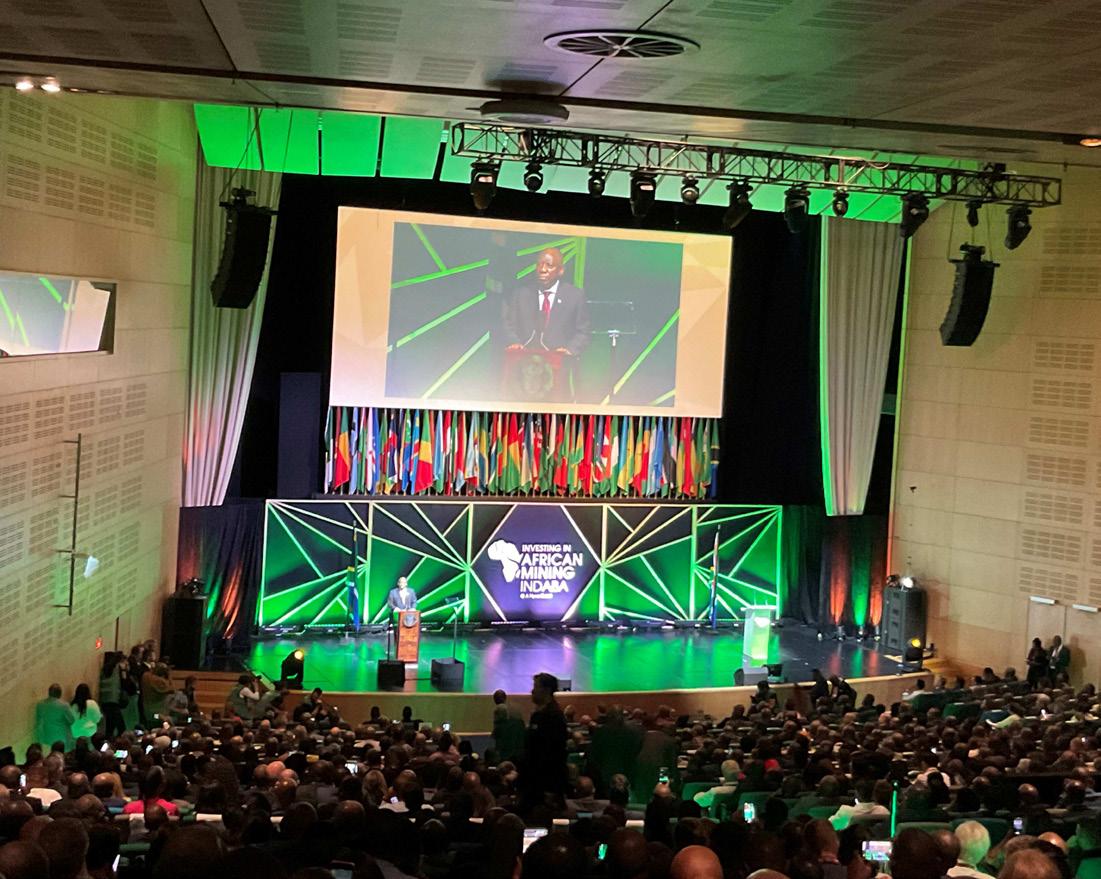
Norton Rose Fulbright provides a full scope of legal services to the world’s preeminent corporations and financial institutions. The global law firm has more than 3 000 lawyers advising clients across more than 50 locations worldwide, including London, Houston, New York, Toronto, Mexico City, Hong Kong, Sydney and Johannesburg, covering Europe, the United States, Canada, Latin America, Asia, Australia, Africa and the Middle East. With its global business principles of quality, unity and integrity, Norton Rose Fulbright is recognised for its client service in key industries, including financial institutions, energy,


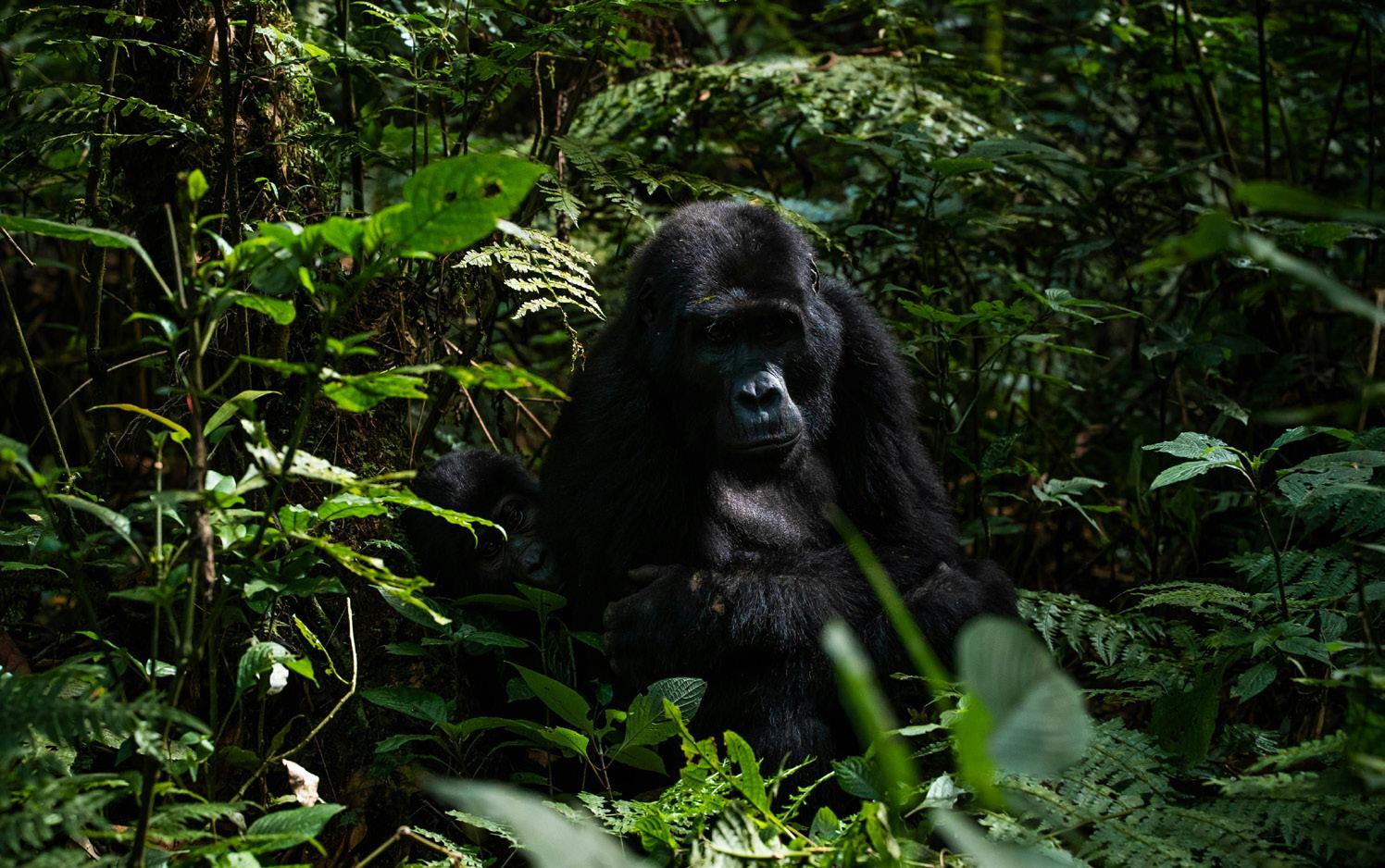
Capital: Kampala.
Other towns/cities: Nansana, Kira, Ssabagabo, Mbarara.
Population: 47.7-million (2023).
GDP: $45.5-billion (2022) World Bank.
GDP per capita: $964.4 (2022) World Bank. Currency: Ugandan shilling.
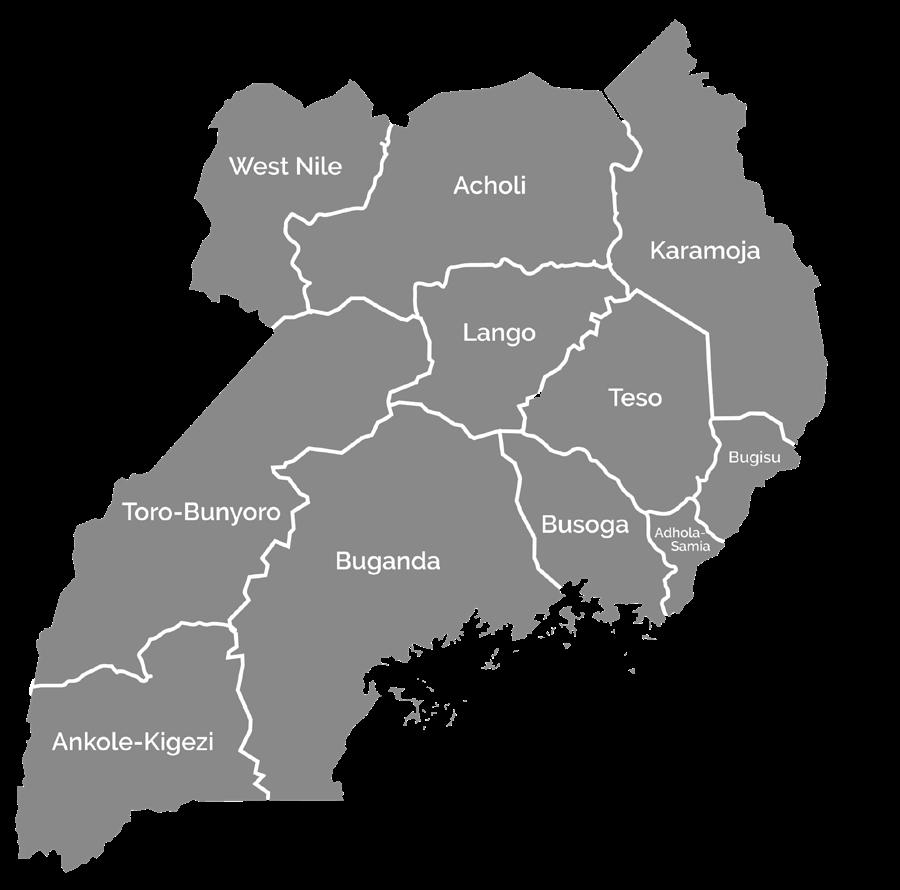

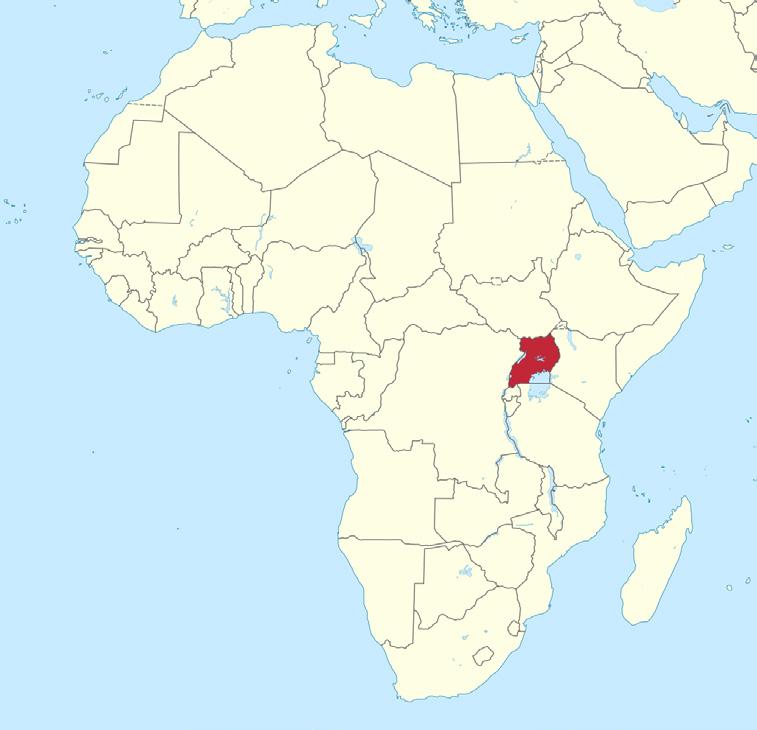
Infrastructure: 39 airports; 20 544km of roads (excluding local roads) of which 4 257km is paved; 1 244km of railway; lakes carry a lot of traffic, especially Lake Victoria (337km) and Lake Kyoga (199km).
Lake ports: Entebbe, Jinja, Port Bell at Lake Victoria.
Installed generating capacity: 2.3-million kW (2020).
Mobile subscriptions per 100 inhabitants: 70 (2022).
Regional Economic Community: East African Community (EAC), Intergovernmental Authority on Development (IGAD), Organisation of Islamic Cooperation (OIC).
Land mass: 241 038km².
Resources: Cobalt, copper, hydropower, limestone. Salt, sugar cane, plantains, cassava, maize, sweet potatoes, milk, vegetables, beans, bananas, sorghum.
Main economic sectors: Sugar processing, brewing, tobacco, cotton textiles, cement, steel production.
Other sectors: Construction based on oil sector growth. Gorillas in the Bwindi Impenetrable Forest, pictured, are a popular attraction (Photo by 2H Media on Unsplash).
New sectors for investment: New projects for tourism, oil and gas infrastructure, services.
Key projects: Investment in the oil and gas sector is expected to boost economic growth. Exports in high-value goods is planned to increase to offset imports needed for the building of infrastructure. The Third National Development Plan aims to increase household incomes and improve the quality of life of Ugandans through sustainable industrialisation for inclusive growth, employment and sustainable wealth creation.
Chief exports: Gold, coffee, milk, fish and fish products, tobacco.
Top export destinations: United Arab Emirates, Kenya.
Top import sources: China, India, Kenya, UAE, Japan.
Main imports: Cars, trucks, packaged medicines, aircraft, wheat.
Internet percentage of population: 10 (2021).
ICT Development Index 2017 (ITU) ranking: 152, 20th in Africa.
Climate: Uganda has a diverse geography with a large plateau, lakes and mountains framing the country to the west and east. Lake Victoria to the south and the rivers of the Nile moderate the tropical weather one might expect of a country that straddles the Equator. Lake Victoria is the world’s second-largest freshwater lake and is shared with Kenya and Tanzania. There are two dry seasons and the northeast is semi-arid.
Religion: Mostly Christian with Roman Catholic and Anglican Church of Uganda accounting for just over 70% of the population. Islam is followed by about 14%.
Modern history: The British Protectorate of Buganda was created in 1894 and independence was achieved in 1962 with Muteesa, King of Buganda, as president but conflict broke out between the Buganda and the central government. A year later a republic was declared and in 1967 Prime Minister Milton Obote seized power and abolished tribal authorities. Obote was overthrown by General Idi Amin, who expelled thousands of Ugandans of Asian descent. Amin’s invasion of Tanzania backfired and allowed Obote to return to power but several rebel groups fought the central government, most notably the National Resistance Army. Uganda’s current president, Yoweri Kaguta Museveni, leader of the National Resistance Movement, has been in power since a civil war ended in January 1986. Changes to the constitution have allowed his re-election ever since, most recently in 2021. Uganda has been involved in several regional conflicts.

Ethiopia hosts the headquarters of several international and continental organisations.
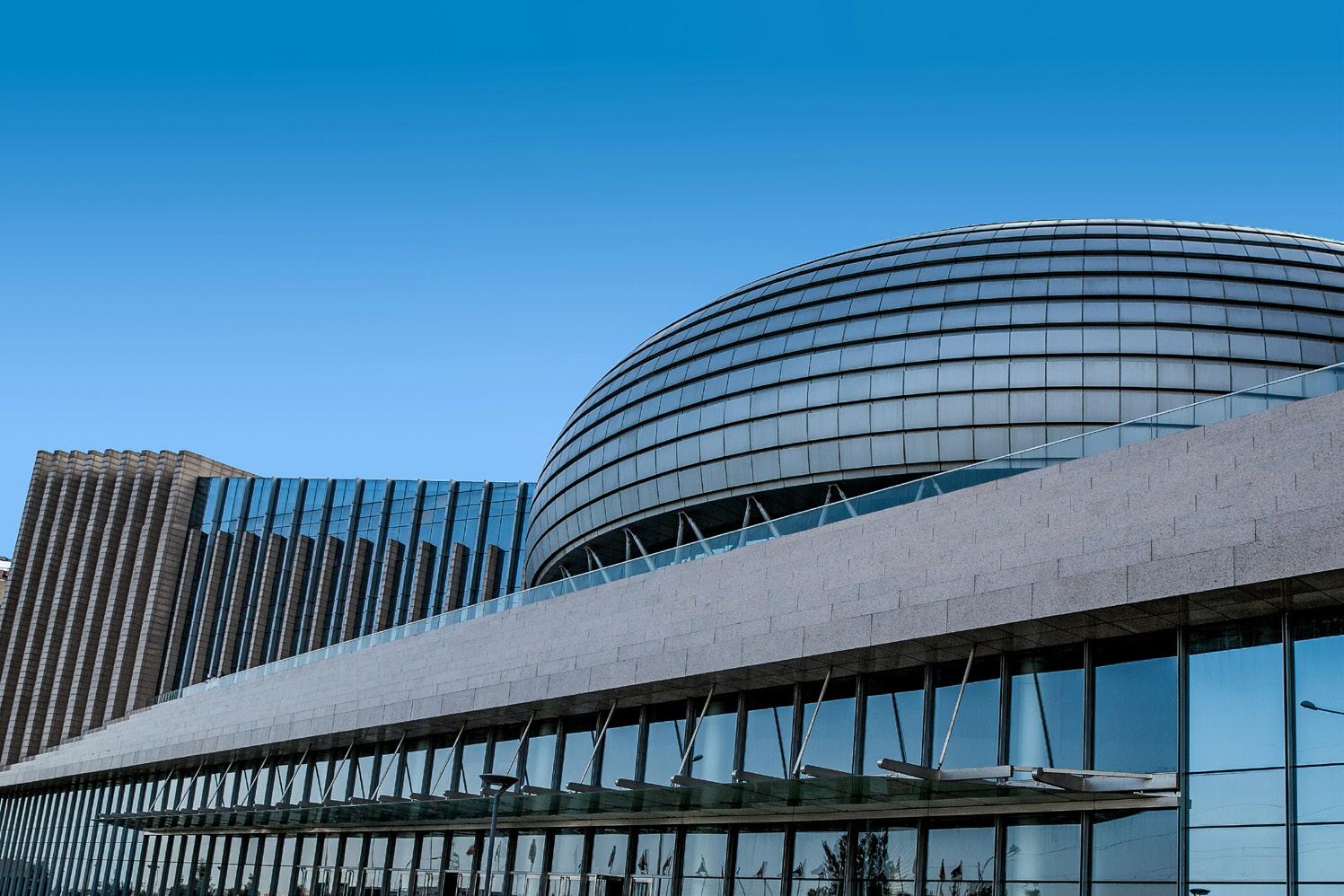
Capital: Addis Ababa.
Other towns/cities: Dire Dawa, Mekelle, Adama, Awassa, Bahir Dar, Gonder, Dessie.
Population: 116.4-million (2023).
GDP: $126.7-billion (2022) World Bank.
GDP per capita: $1 027 (2022) World Bank.
Currency: Birr.
Regional Economic Community: The Intergovernmental Authority on Development (IGAD), BRICS, African Union (headquarters in Addis Ababa, pictured).
Land mass: 1 104 300km².
Resources: Gold, platinum, copper, potash, natural gas, maize, cereals, wheat, sorghum, milk, barley, sweet potatoes, roots/tubers, sugar cane, millet.
Main economic sectors: Food processing, beverages, textiles, leather, garments, chemicals, metals processing, cement. Ethiopian Airlines is the country’s biggest company.
Other sectors: Hydropower, coffee and maize exports, designer leather items.
New sectors for investment: Infrastructure, light manufacturing, construction, services, renewable energy, logistics and telecoms.
Key projects: A 10-Year Development Plan, based on the 2019 Home-Grown Economic Reform Agenda, oversees economic growth plans, which is to be maintained while transitioning to more private sector involvement in the economy.
World Bank projects cover agriculture, sustainable land management, energy, transportation, trade logistics, digital development and finance.
Chief exports: Coffee, maize, gold, sesame seeds, vegetables, cut flowers, aircraft parts.
Top export destinations: China, United States, United Arab Emirates, Saudi Arabia, South Korea, Germany.
Top import sources: China, India, United Arab Emirates, France, United Kingdom.
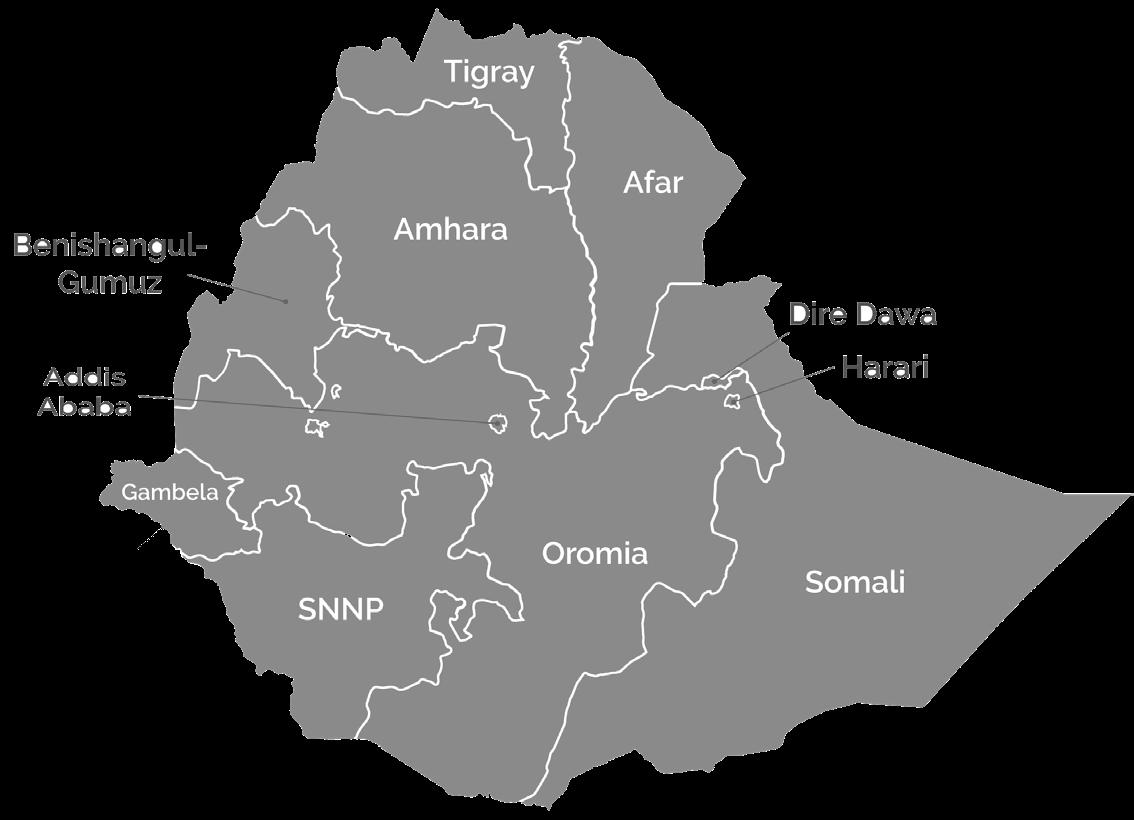
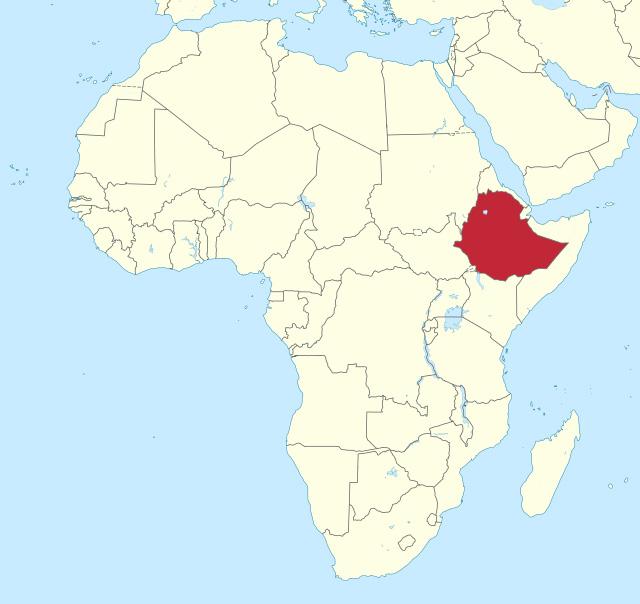
Main imports: Aircraft, gas turbines, packaged medicines, electric filament, cars.
Infrastructure: More than 60 airports, including Bole International Airport in Addis Ababa and the Aba Tenna Dejazmach Yilma International Airport in Dire Dawa. Hosts the Cairo-Cape Town Highway and the N’Djamena-Djibouti Highway. Ethiopia has 926km of electrified standard gauge railways. ICT Development Index 2017 (ITU) ranking: 170, 32nd in Africa.
Mobile subscriptions per 100 inhabitants: 56 (2022).
Internet percentage of population: 17 (2021).
Climate: Varied climate because of altitude variations, from the Ethiopian Highlands which constitutes the largest continuous mountain chain on the continent, to the lower-lying eastern regions of the country where grasslands predominate and the climate is dry and hot. Most of the country experiences tropical monsoon conditions and the country has 14 large rivers flowing from the Highlands, including the Nile River.
Religion: Ethiopian Orthodox, Muslim, Christian.
Modern history: Ethiopia occupies an important place in the history of Africa as the continent’s oldest independent country with a storied cultural and religious heritage. Modern Ethiopia has experienced periods of famine and bitter conflict, the former sometimes leading to the latter. Emperor Haile Selassie was overthrown in a coup led by Mengistu Haile Mariam in 1974, having annexed Eritrea 12 years earlier. Soon after the Ethiopian People’s Revolutionary Democratic Front ousted Mengistu in 1991, Eritrea achieved independence. The two countries went to war again in 1999-2000 but when rebels in the Tigray region fought the Ethiopian state in 2020, Eritrea sided with the central government. In 2018 Sahle-Work Zewde became Ethiopia’s first woman president and Prime Minister Abiy Ahmed came to office. Ethiopia is a founding member of the UN and Addis Ababa hosts the headquarters of a number of continental organisations such as the African Union and the Pan African Chamber of Commerce and Industry.


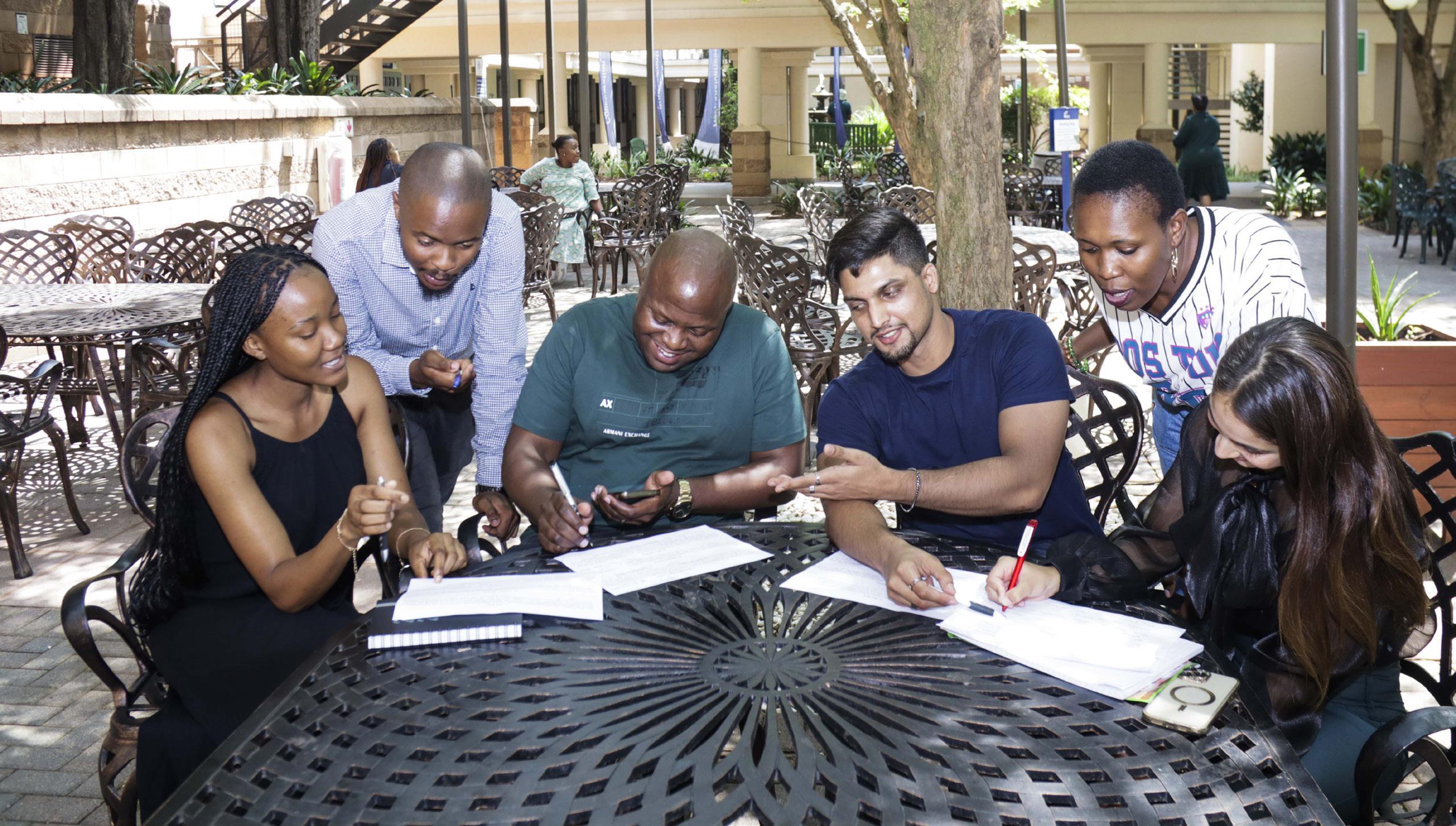
Let our experts empower you to tackle complex issues, critical development, and policy challenges and effect positive change in South Africa and Africa. Apply now for our 2025 July intake for our academic programmes at the Wits School of Governance.
• Postgraduate Diploma in Management (Public and Development Management)
• Postgraduate Diploma in Management (Public and Development Sector Monitoring and Evaluation)
• Postgraduate Diploma in Management (Security)
• Master of Management (Research)

• Master of Management in Governance (General, Public Policy, Public and Development Sector Monitoring and Evaluation, Development and Economics, and Governance and Management)
Closing date: 31 October 2024
Contact
Email: academicprogrammes.wsg@wits.ac.za
Telephone: +27 11 717 3520

